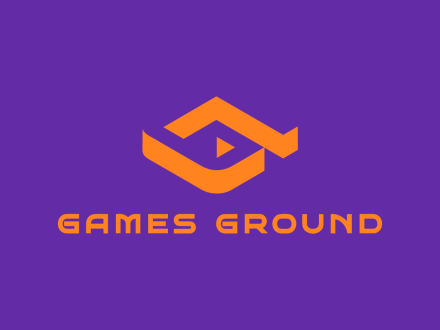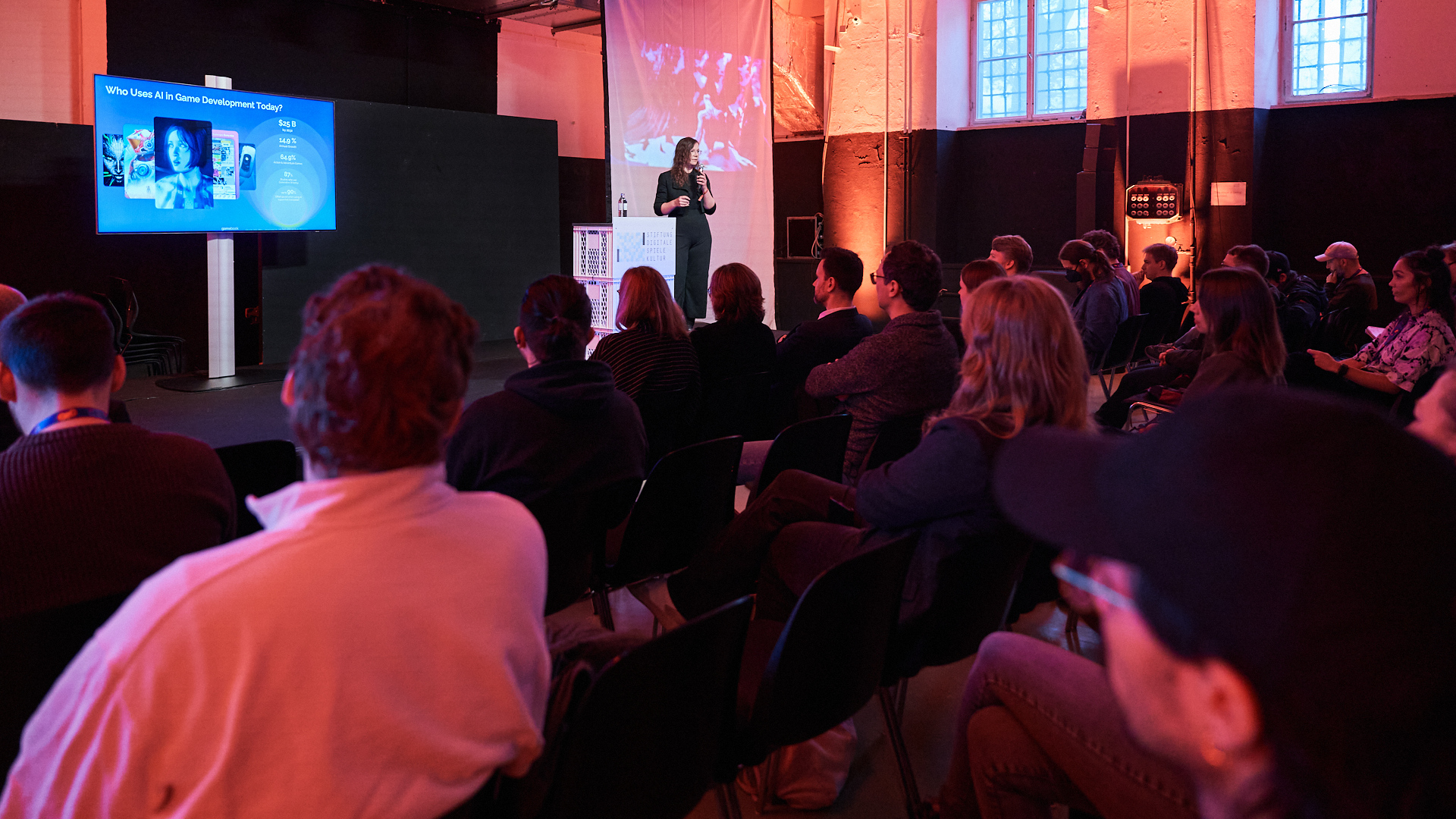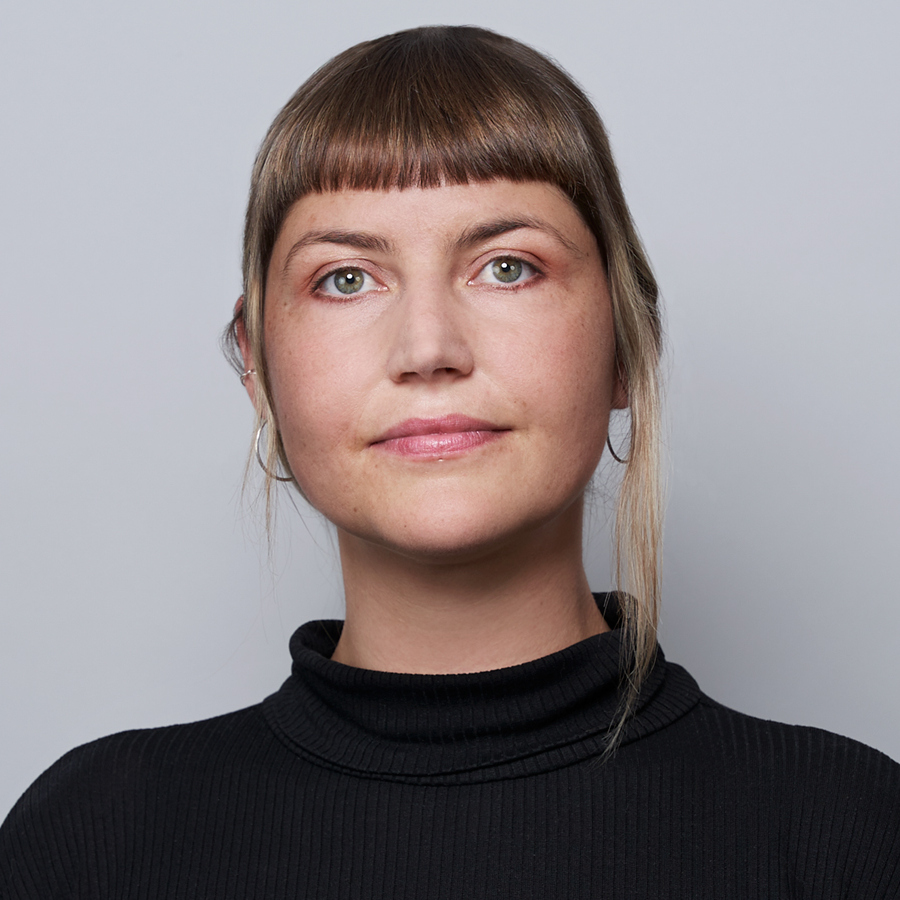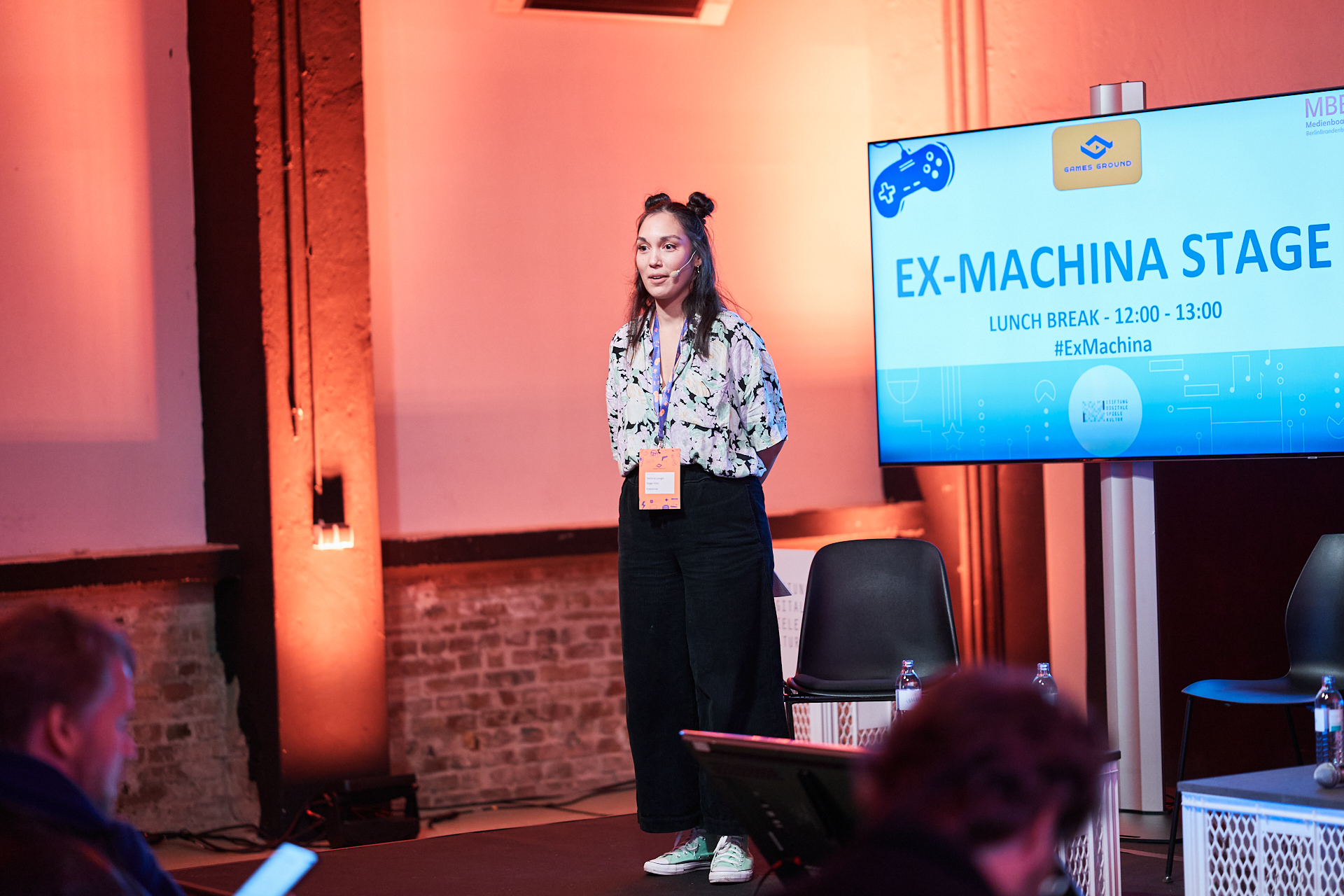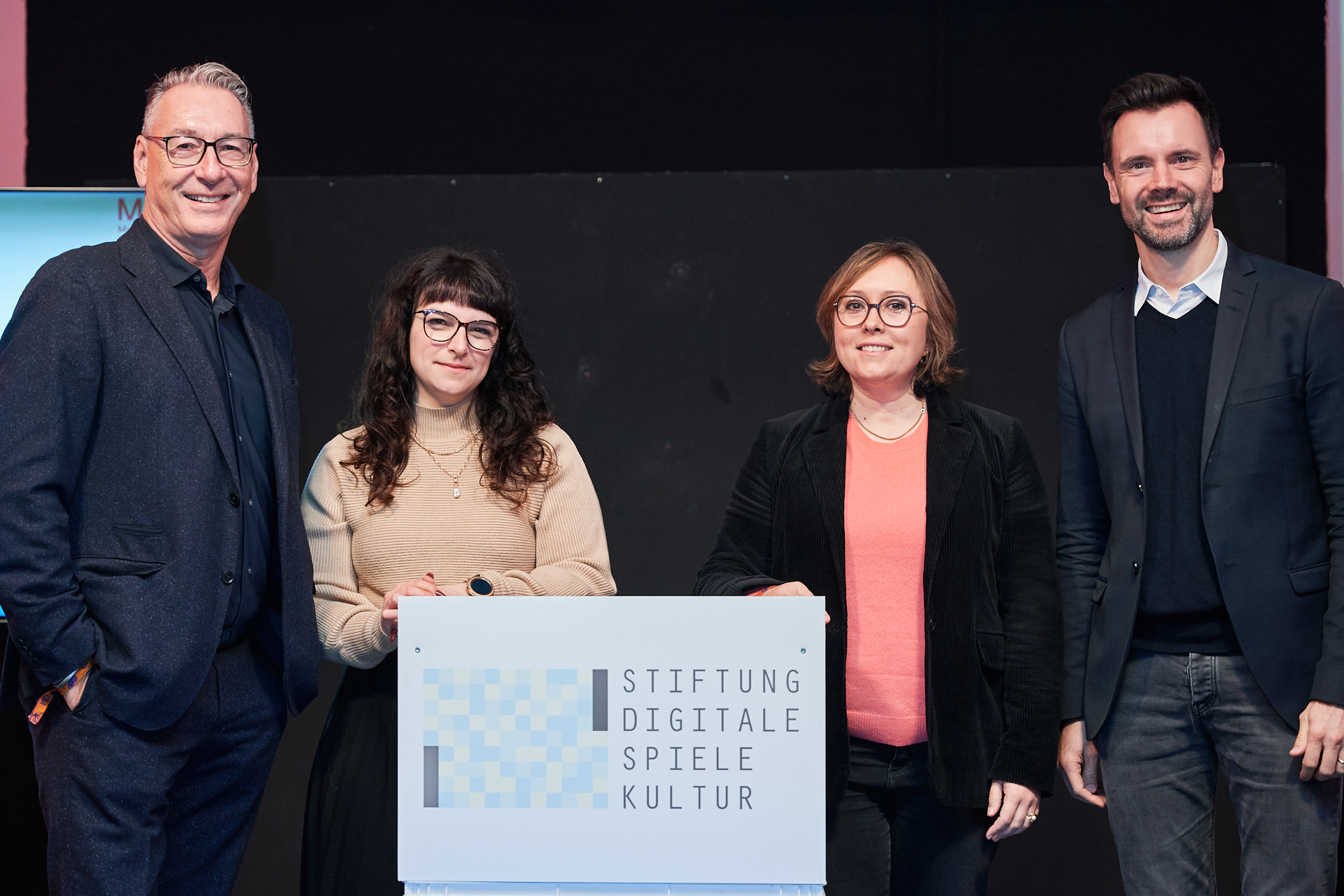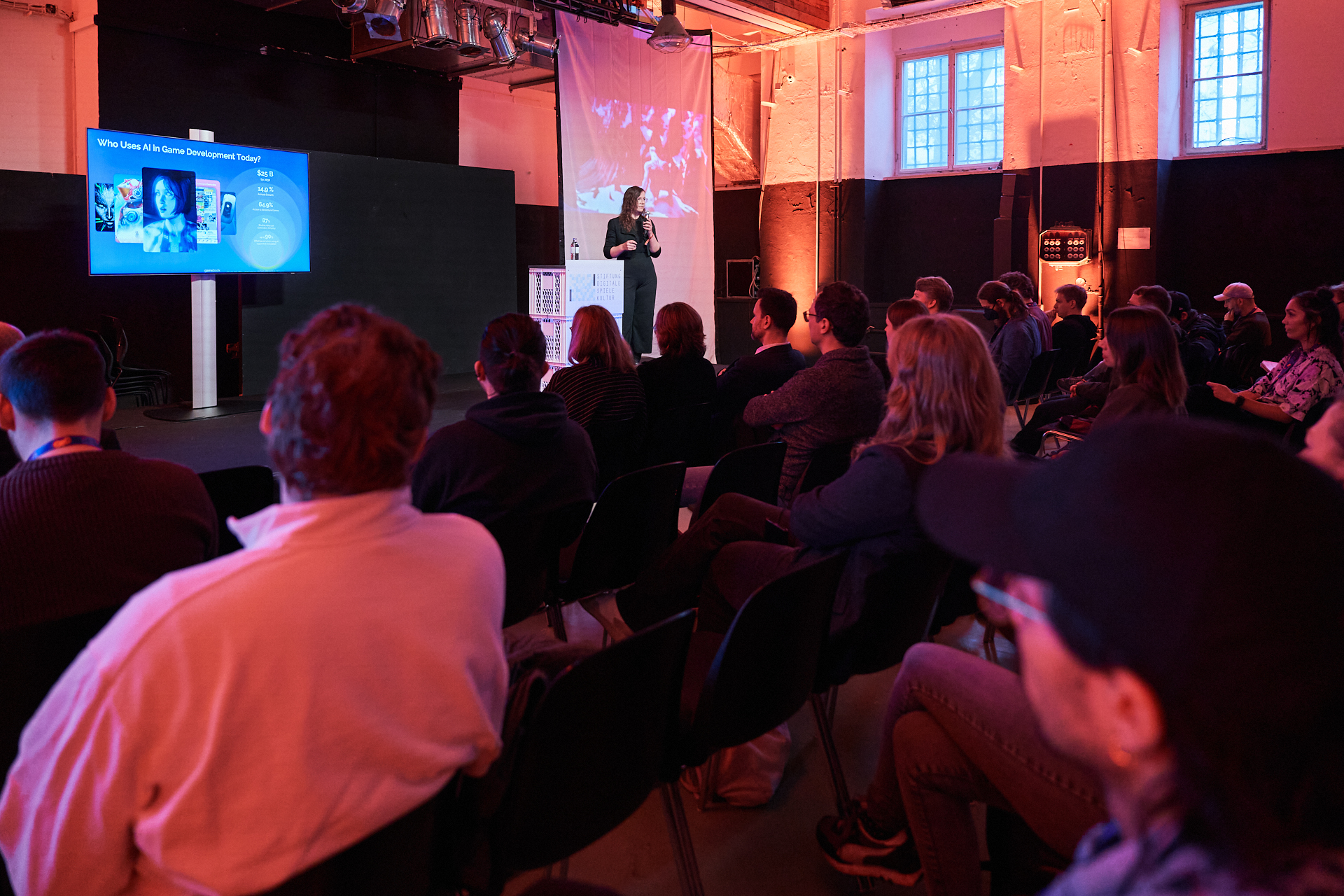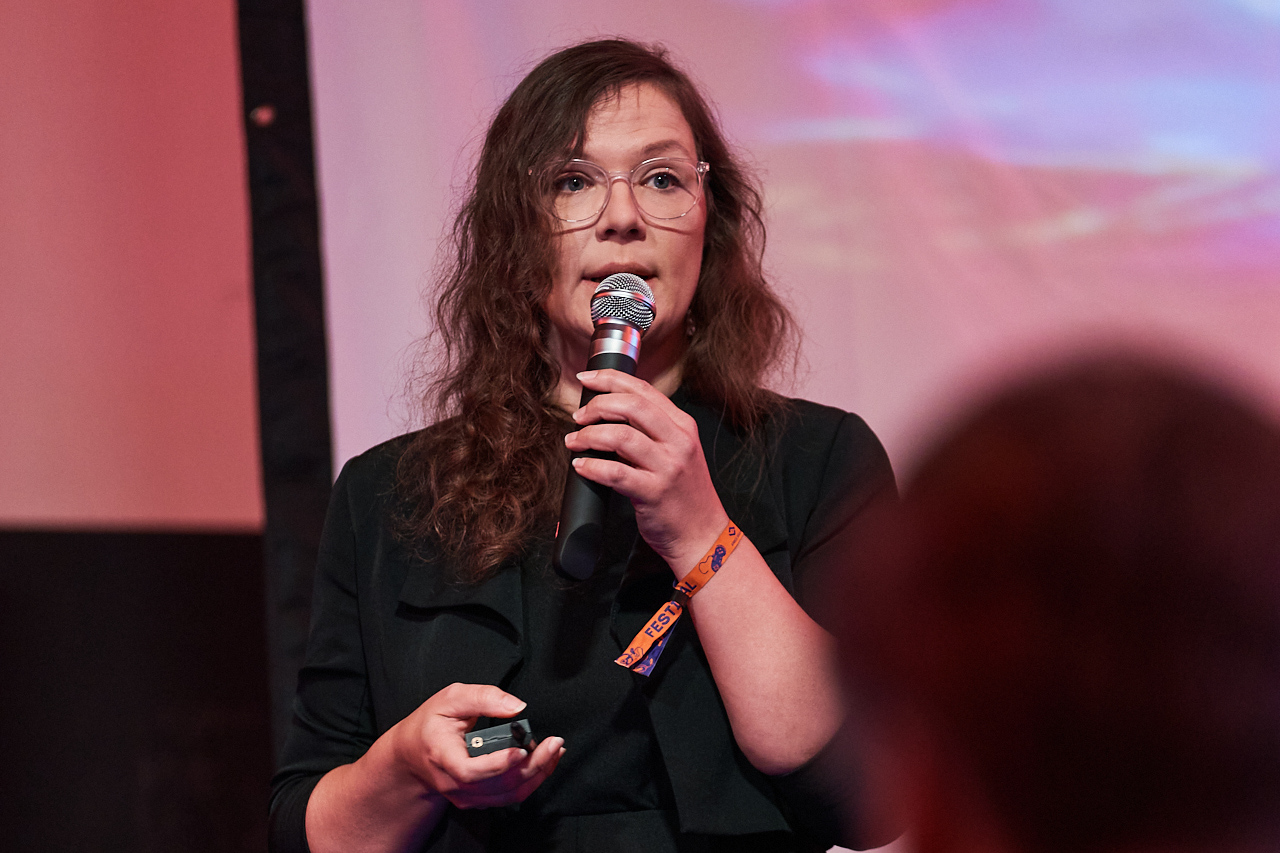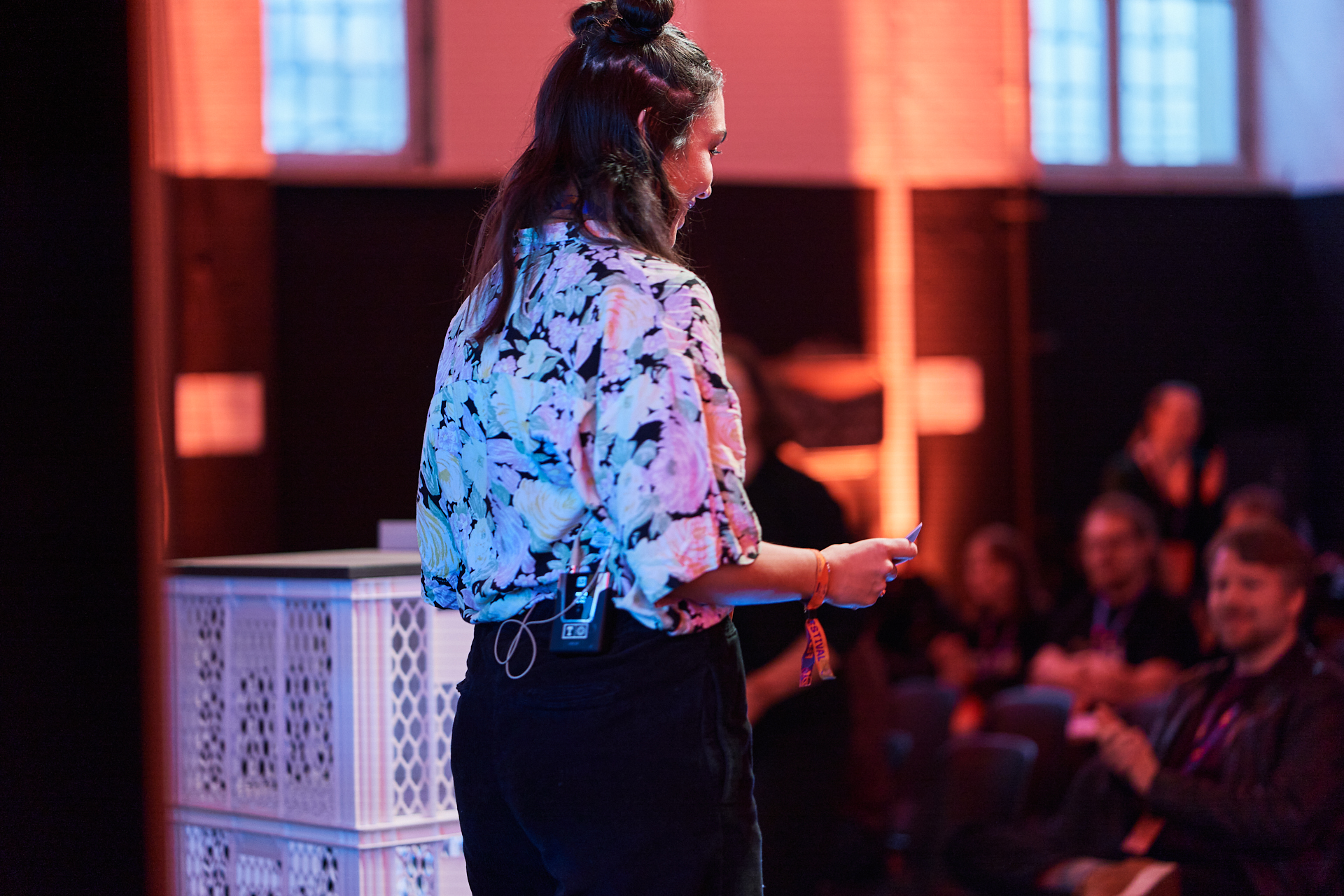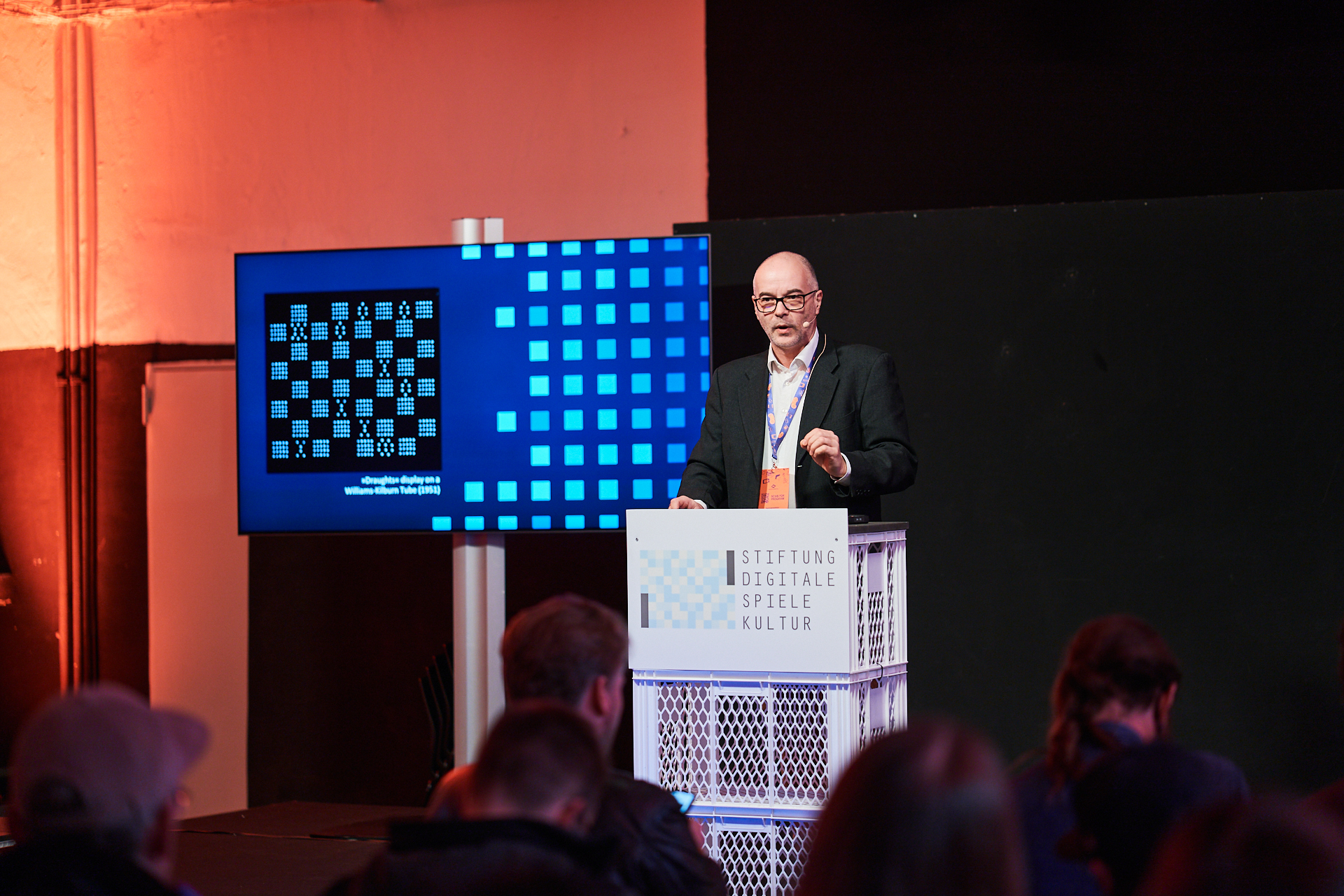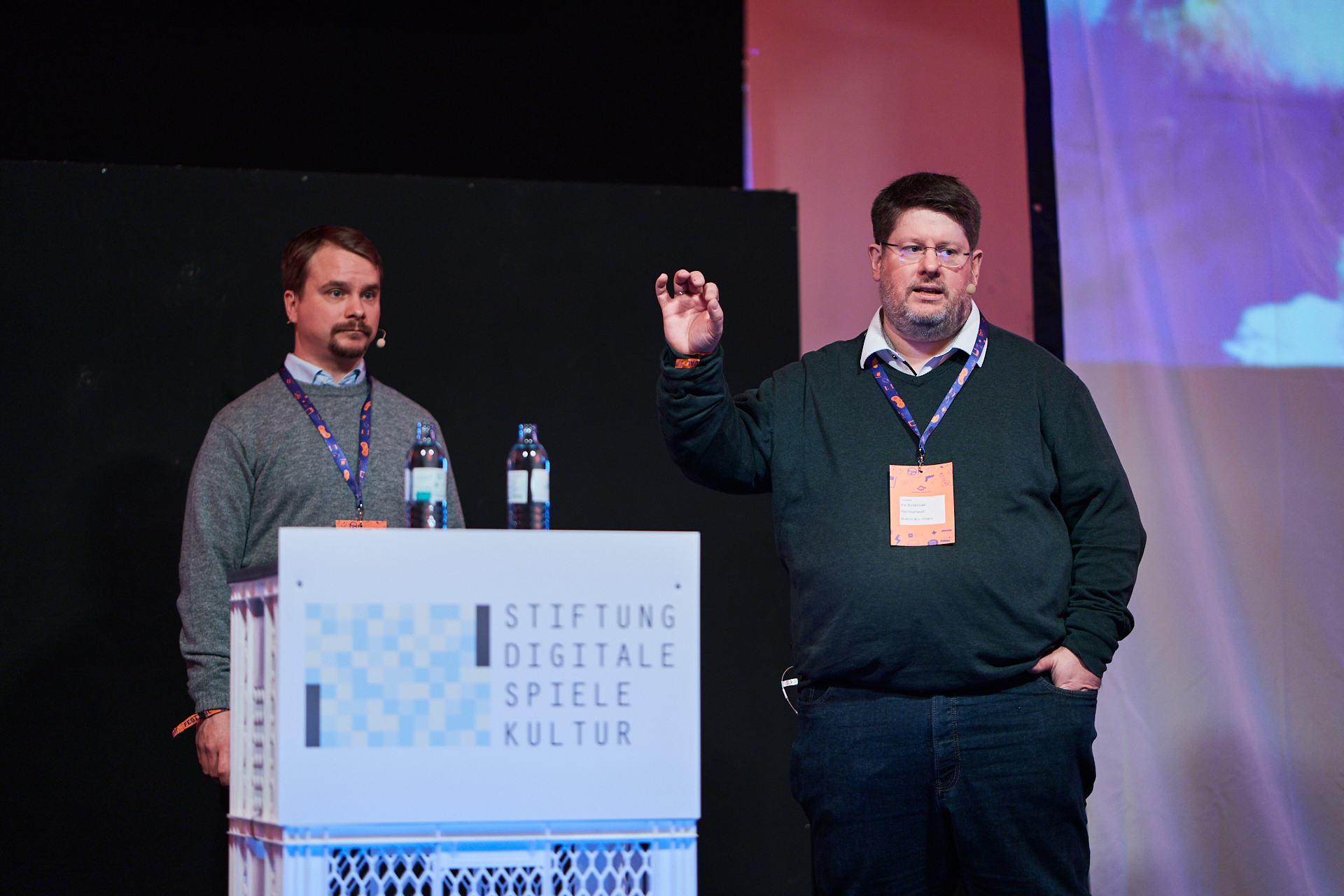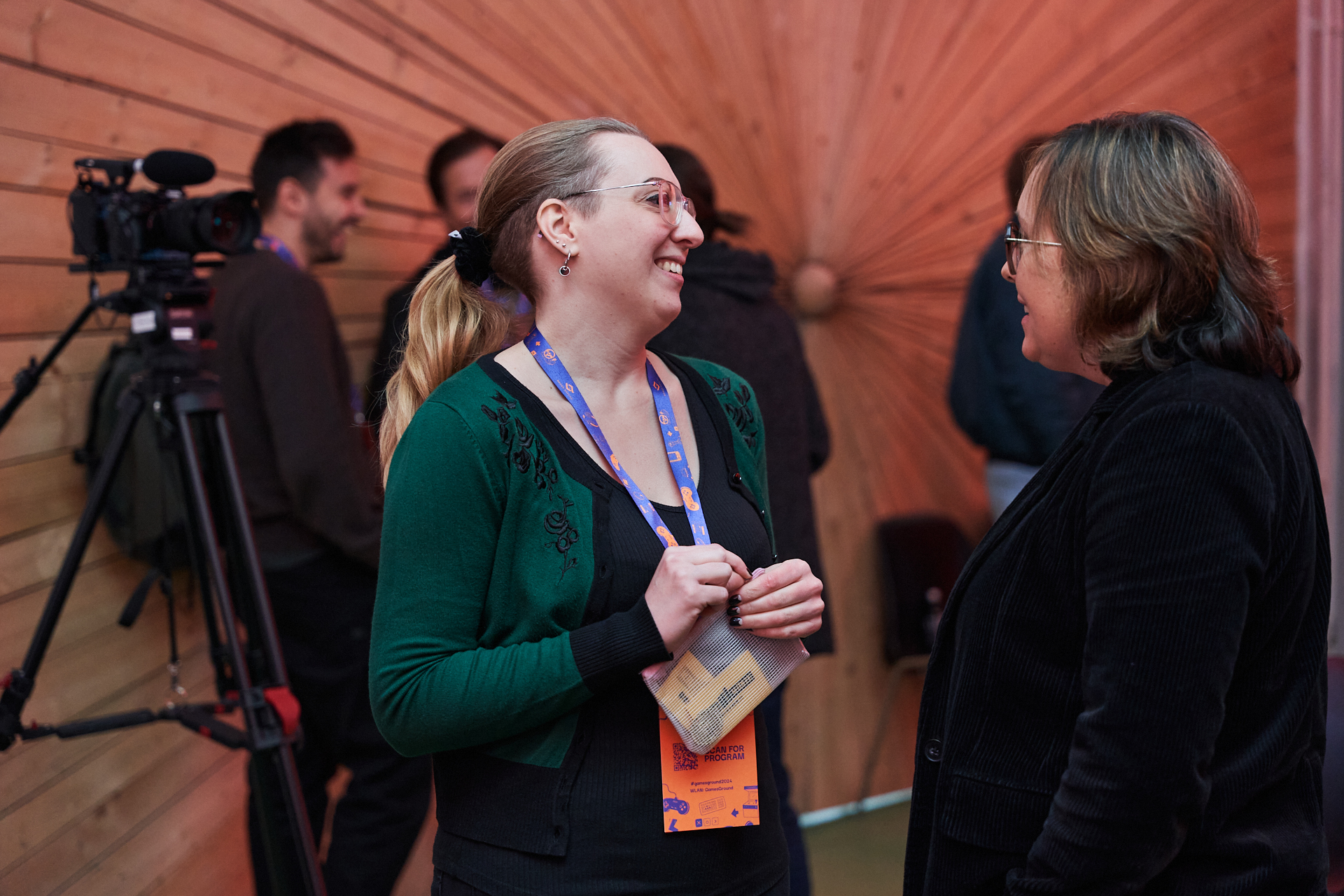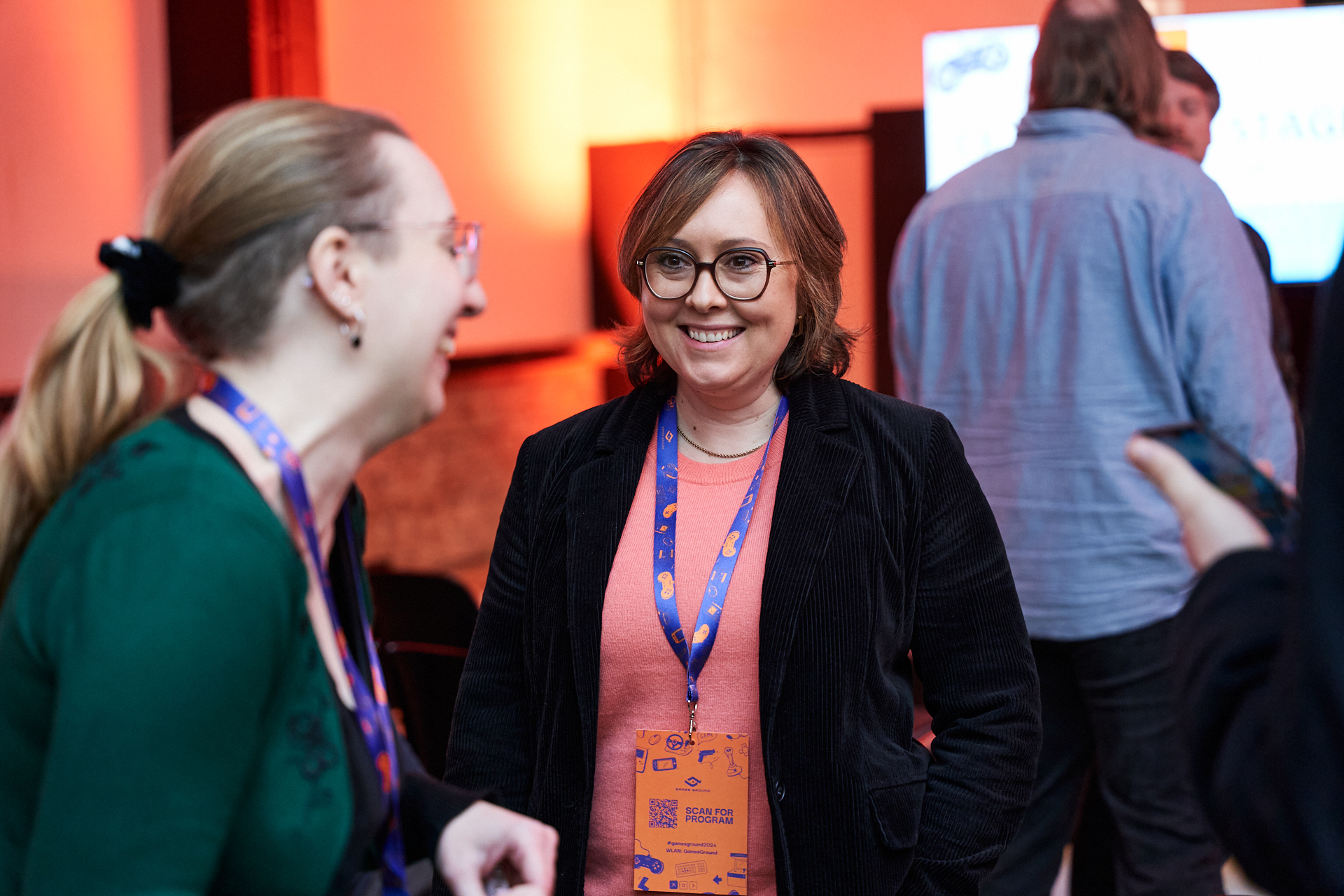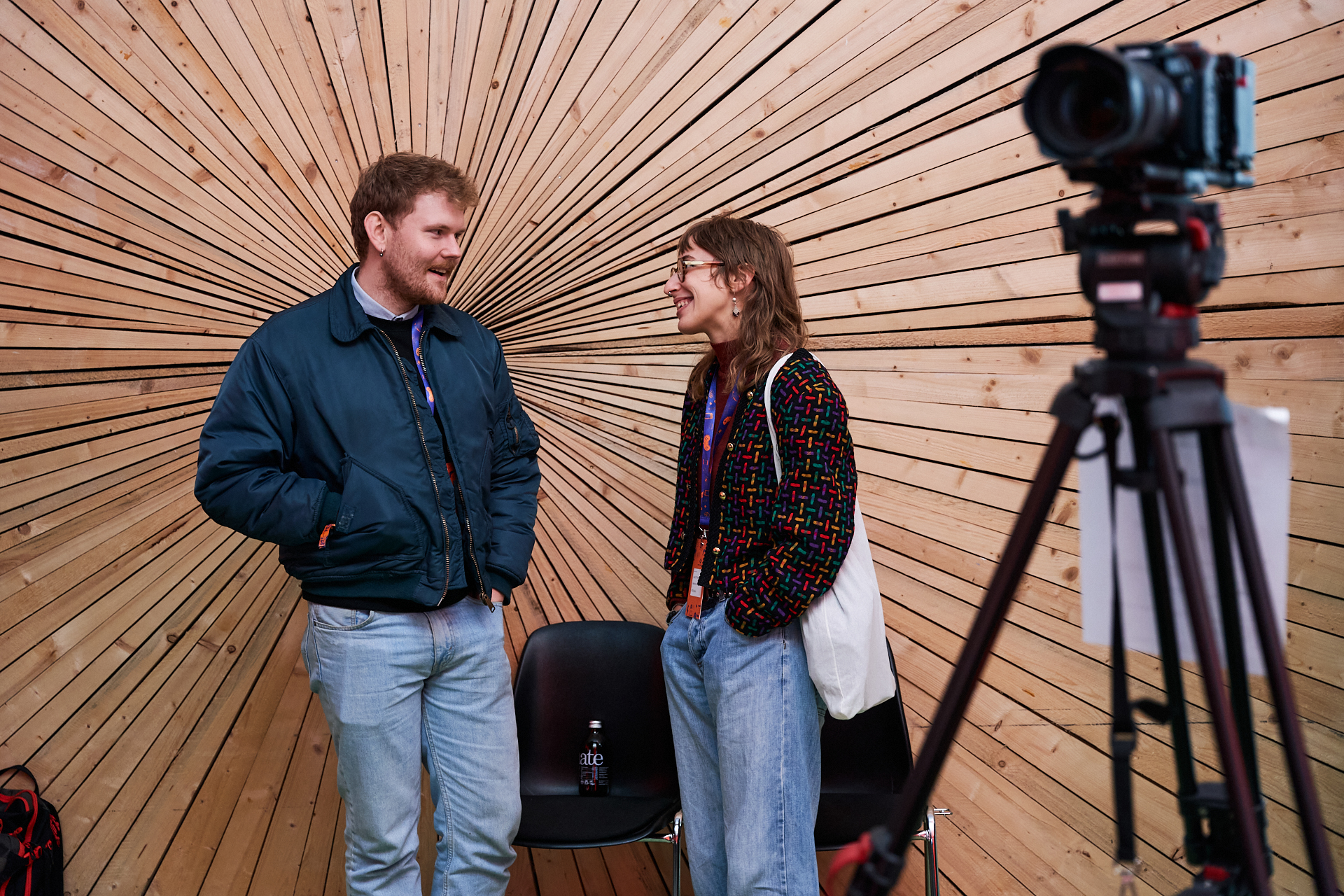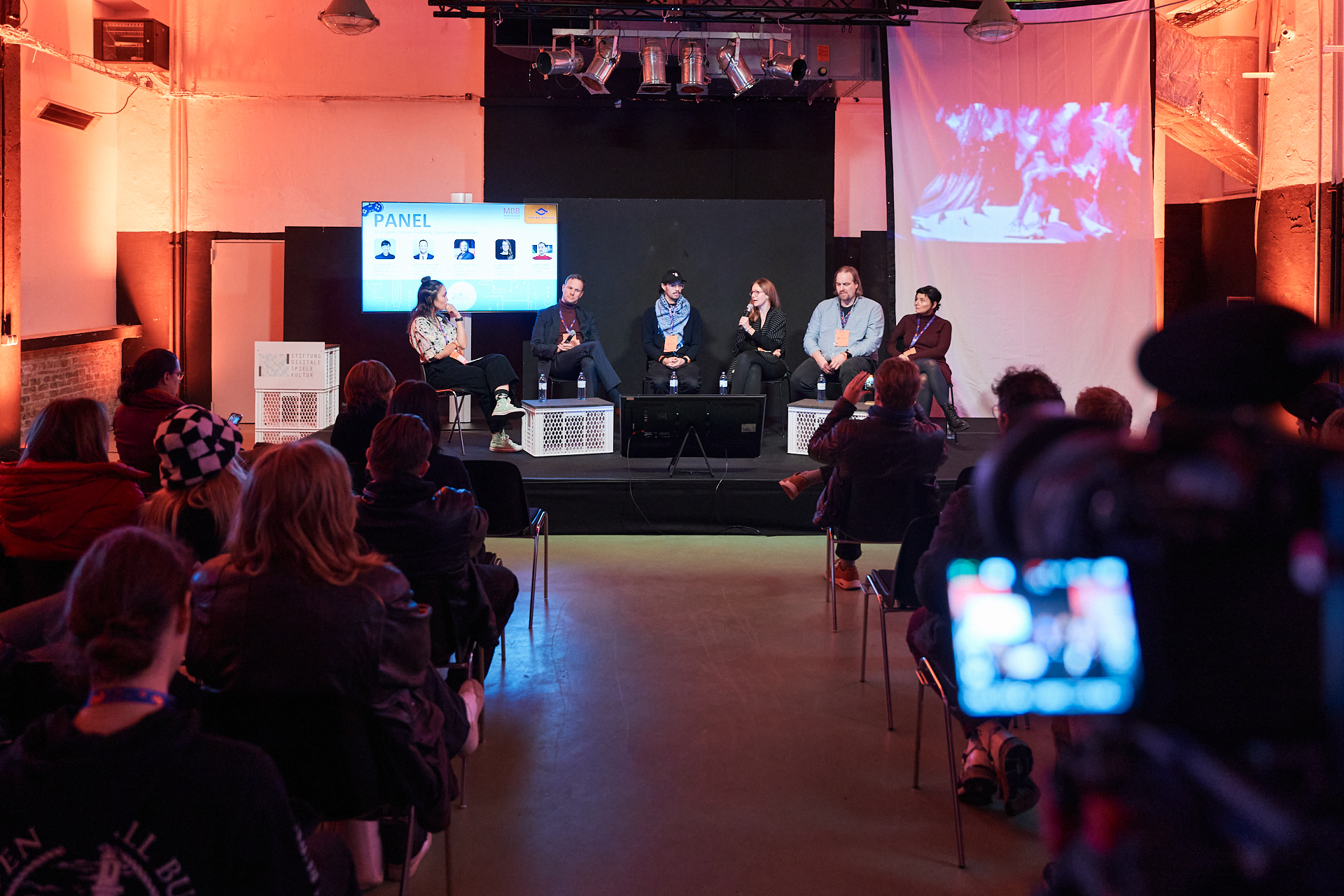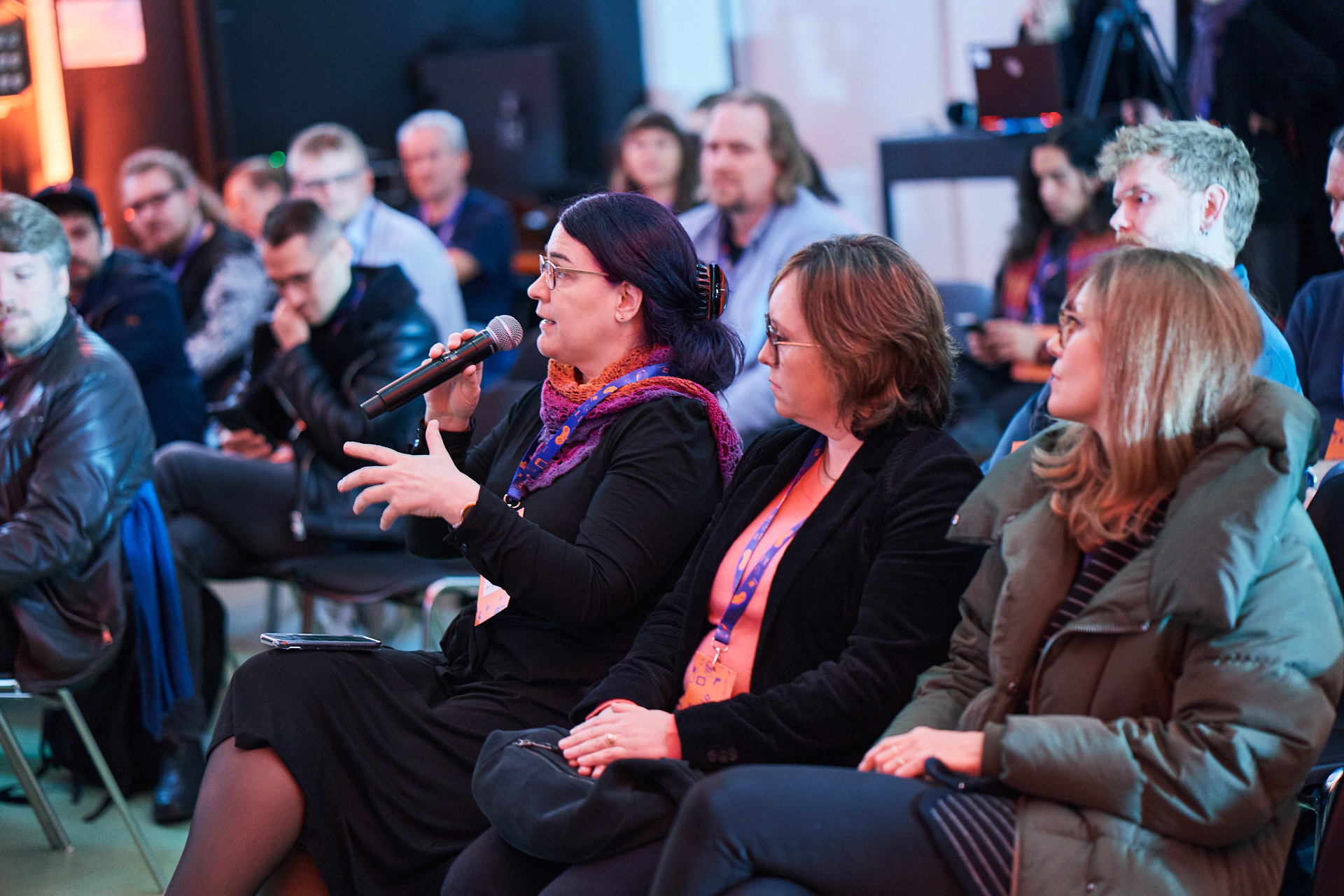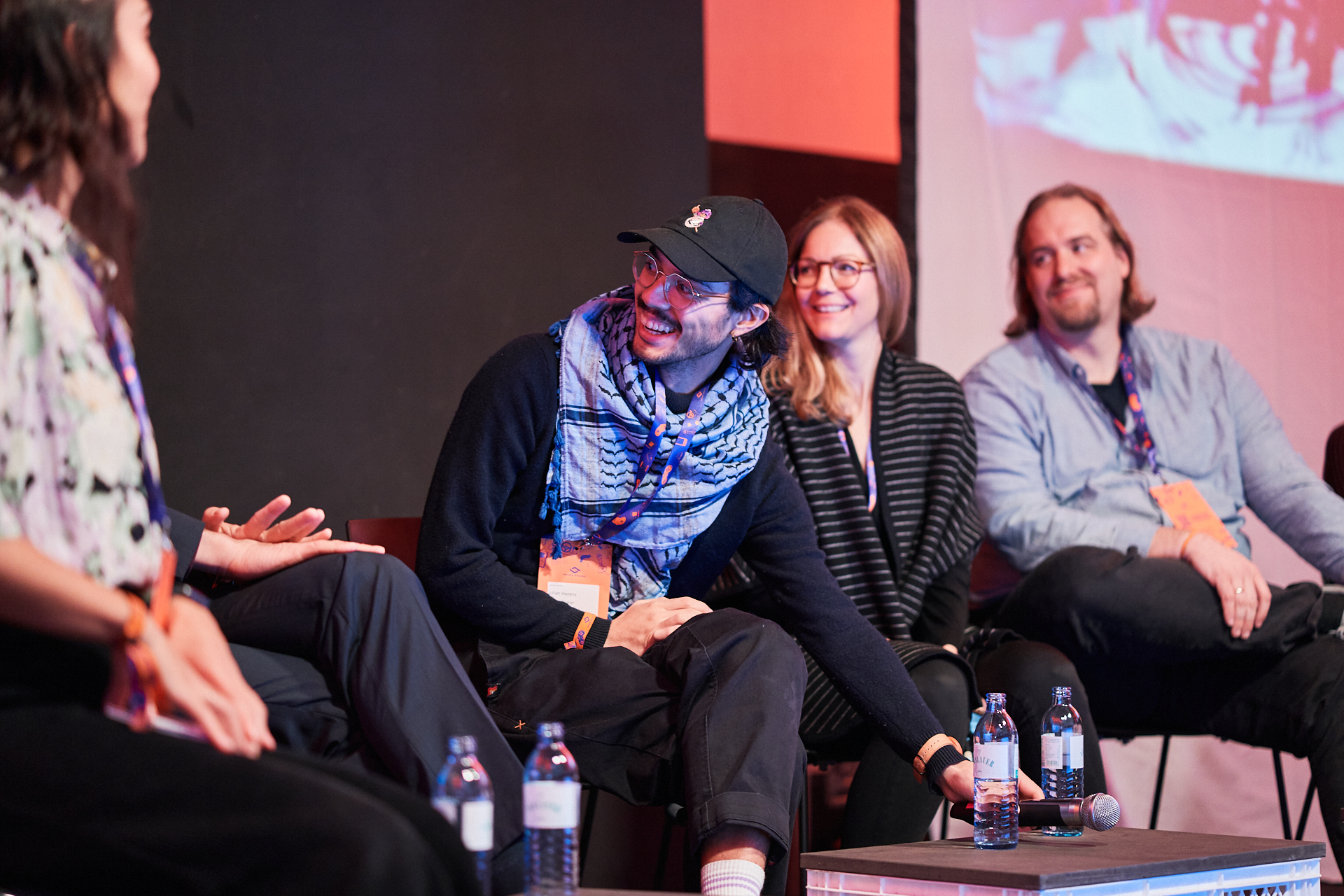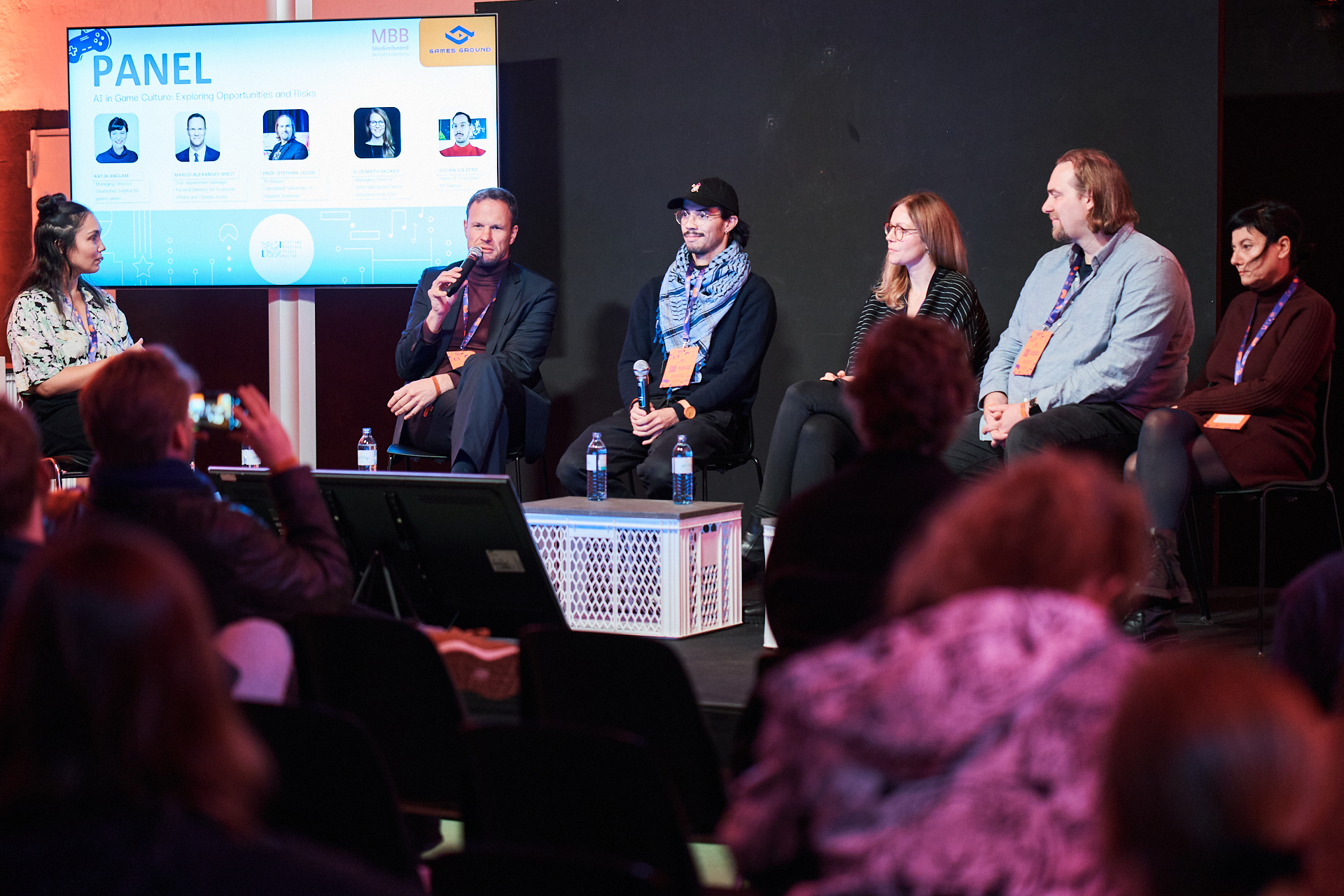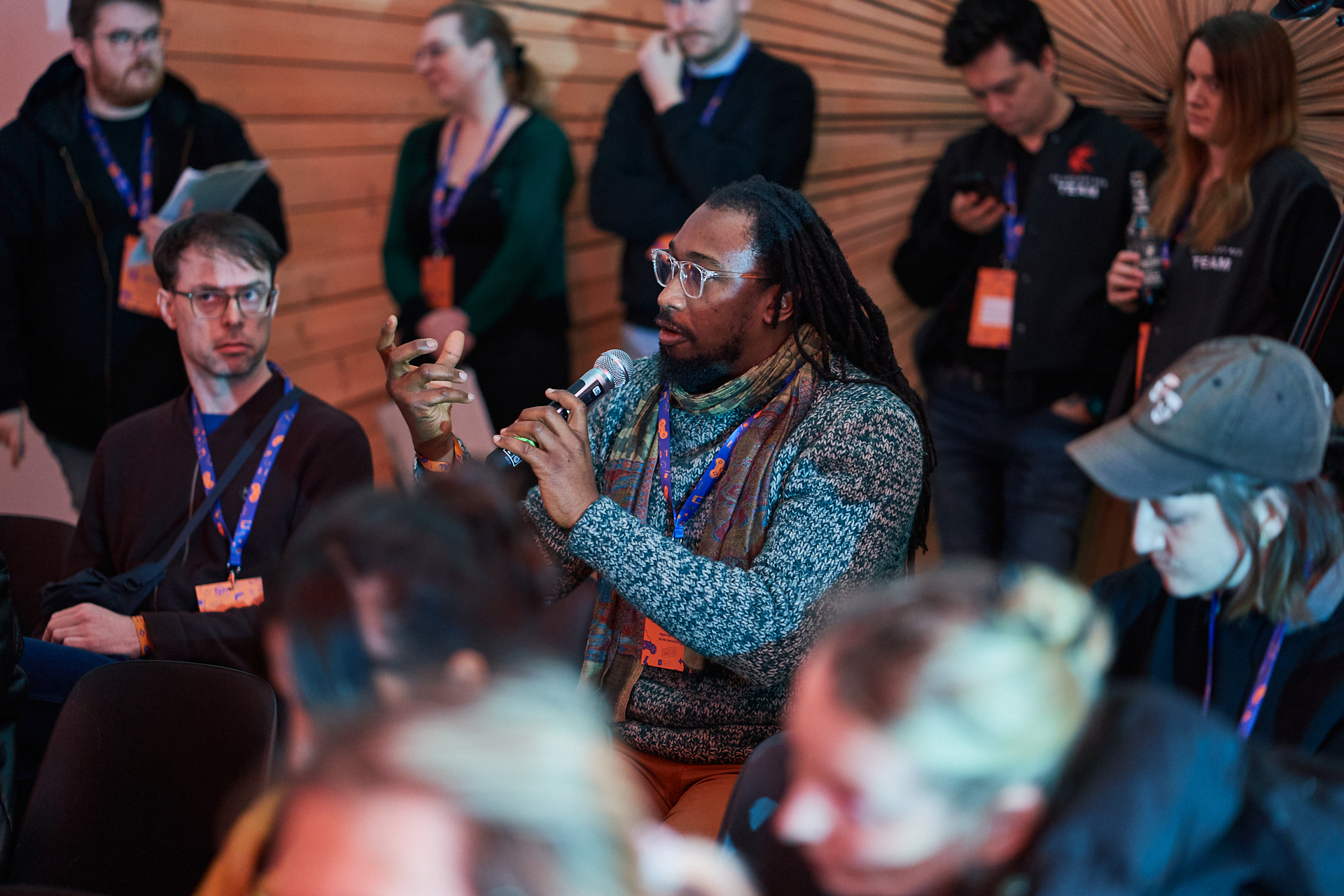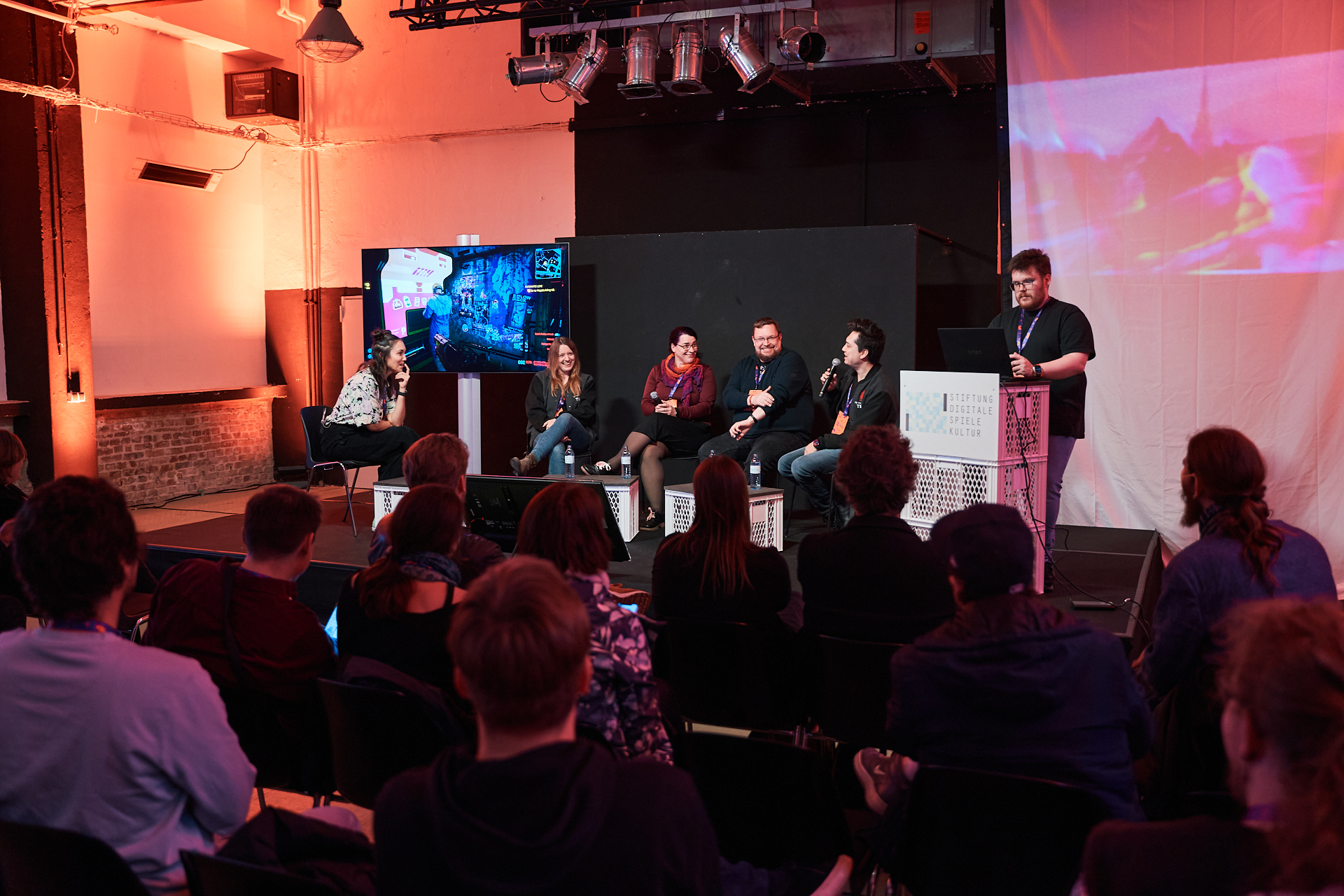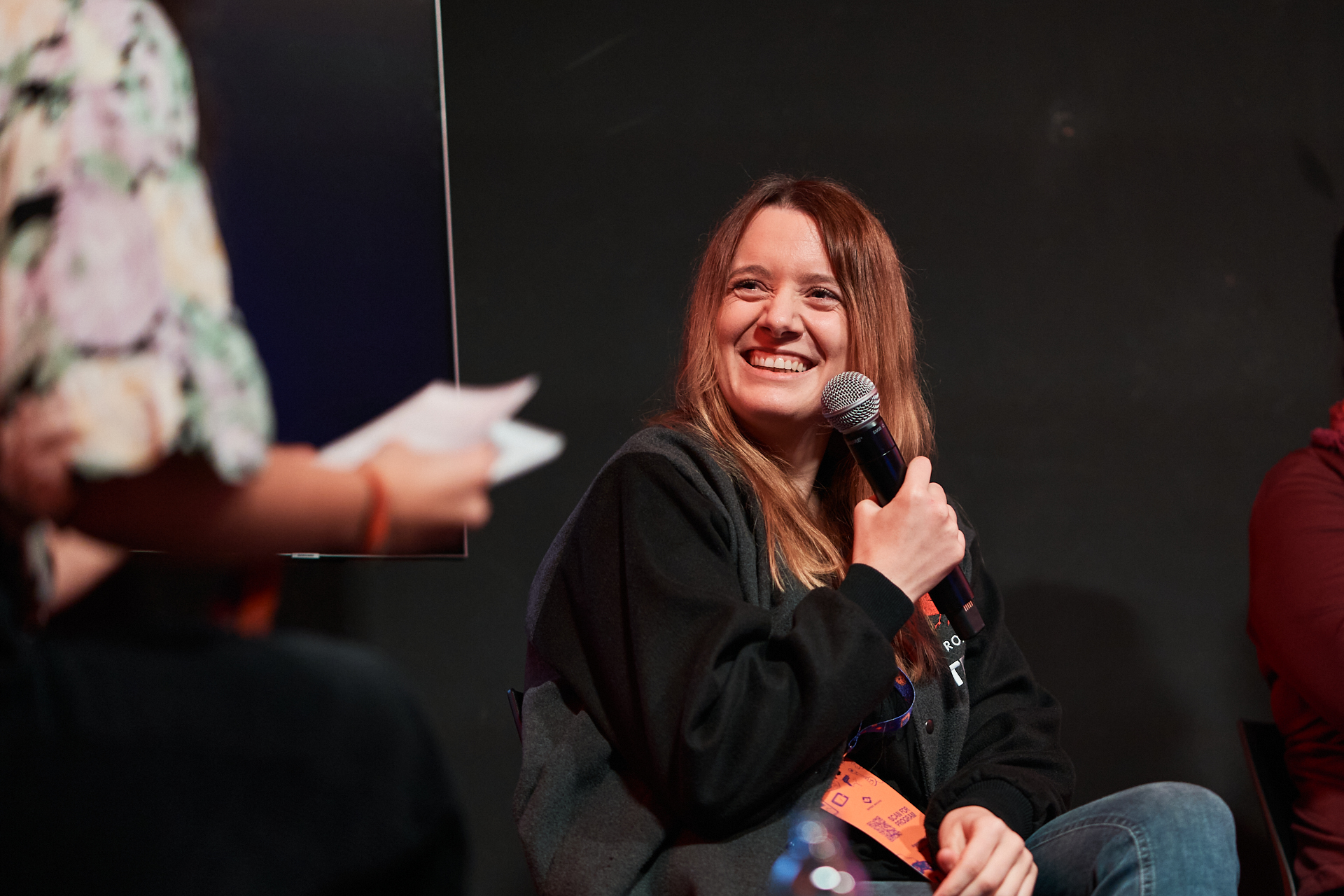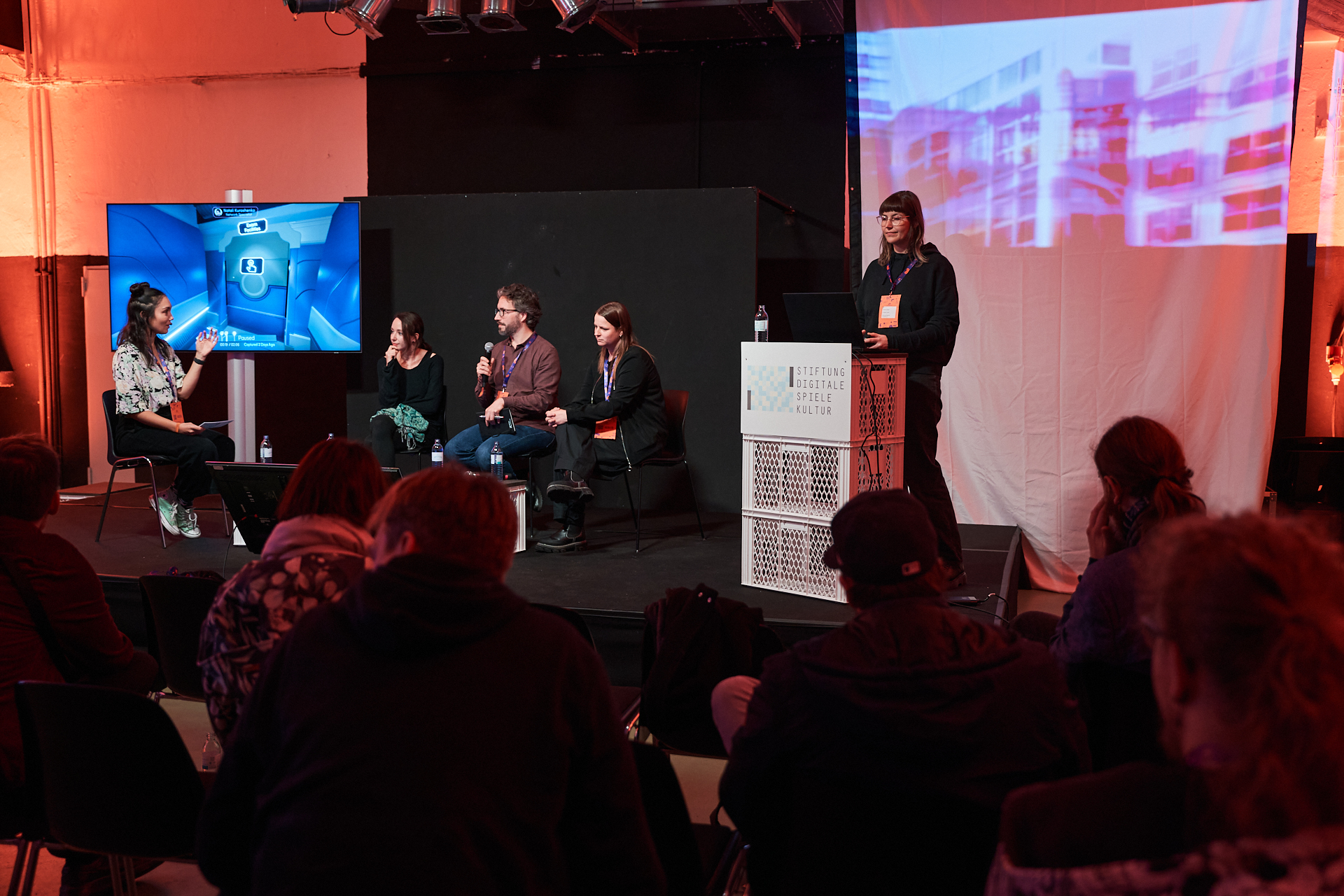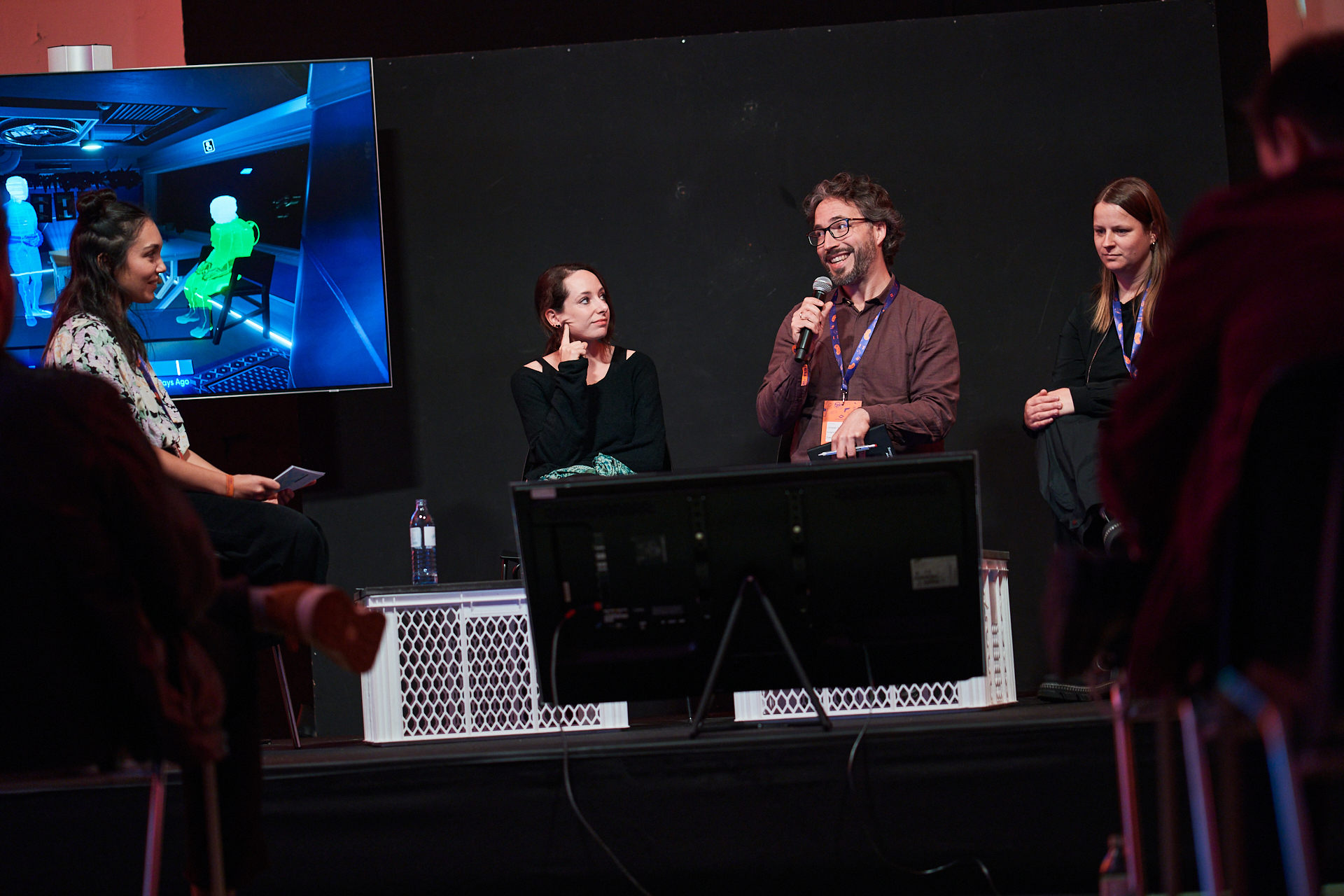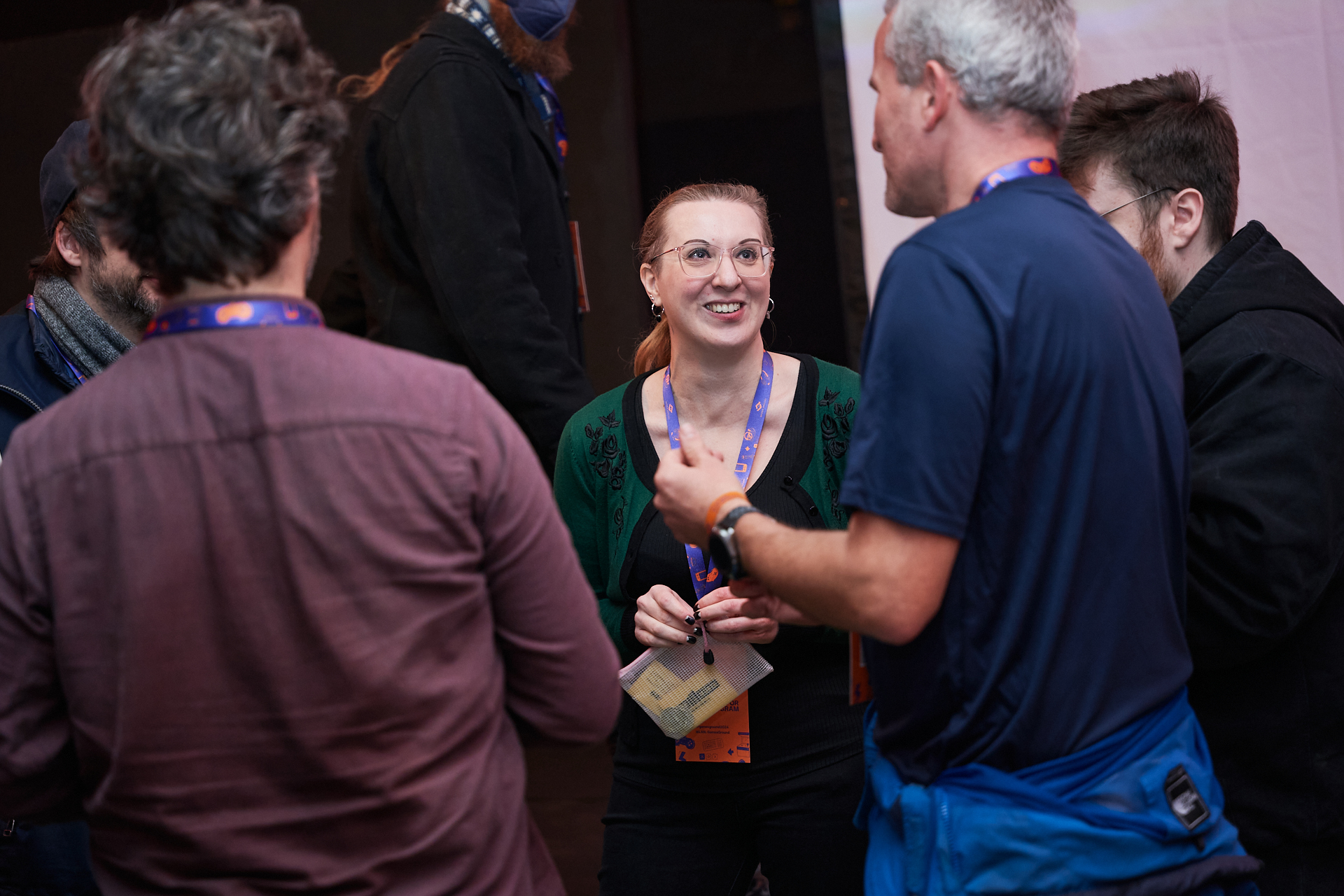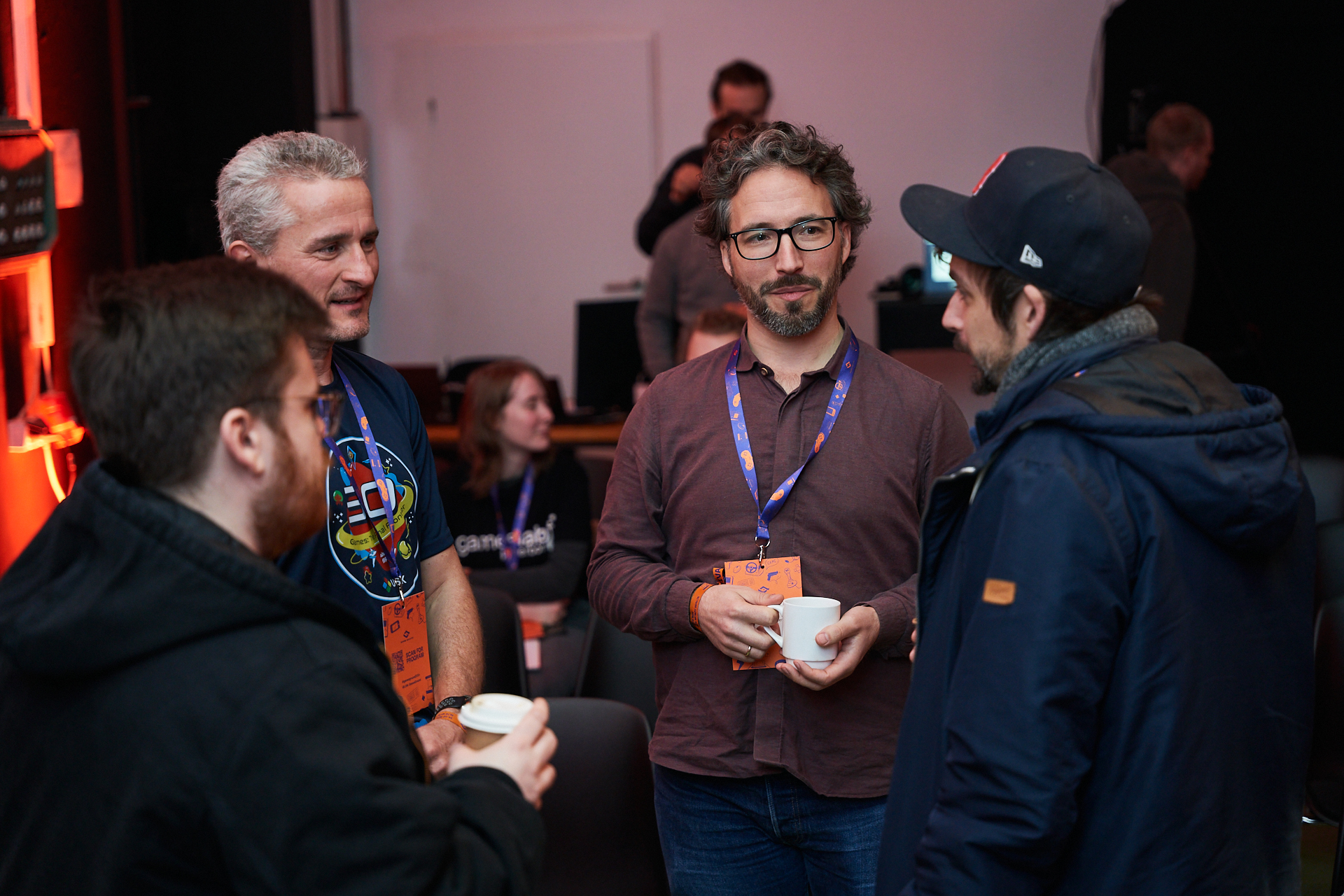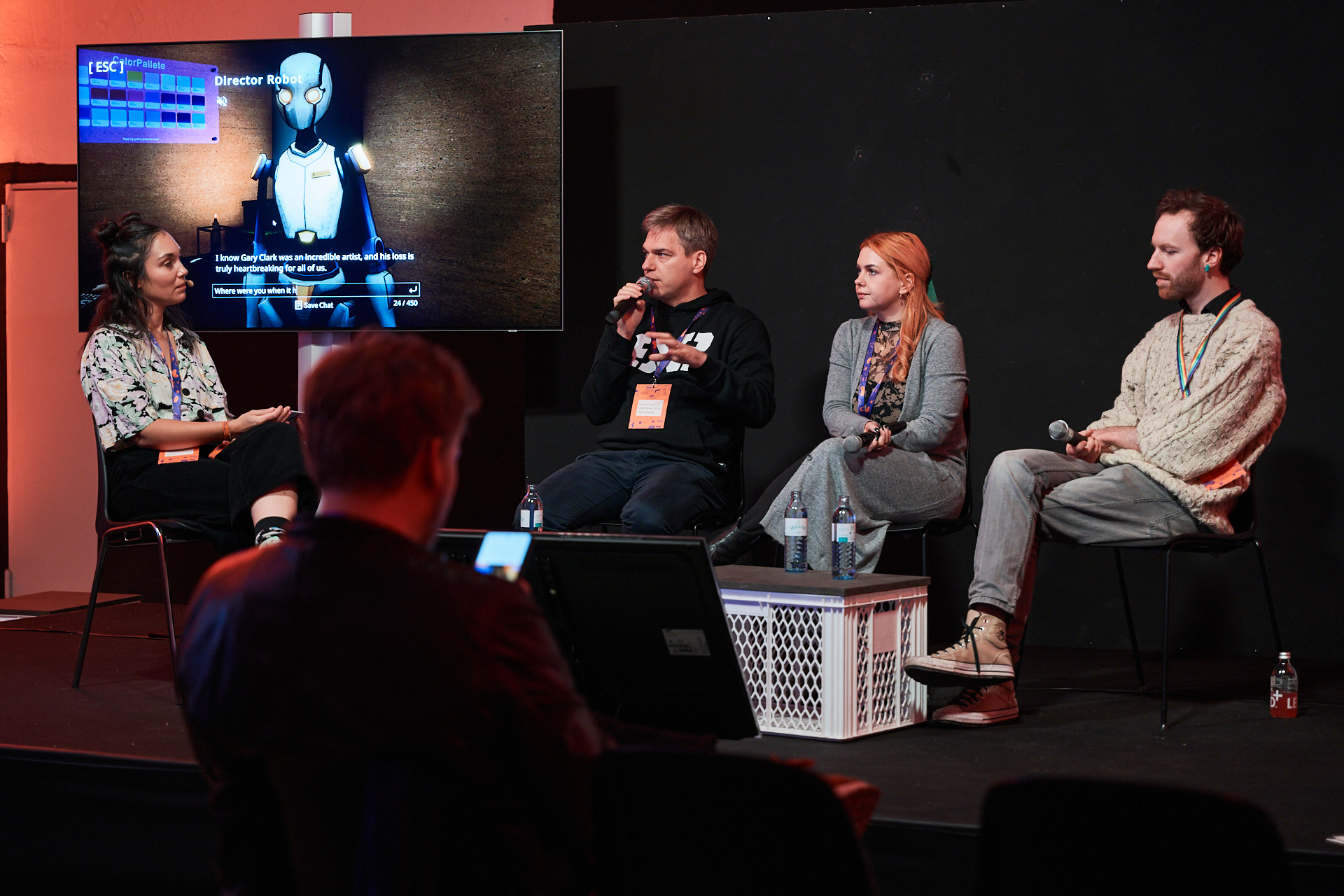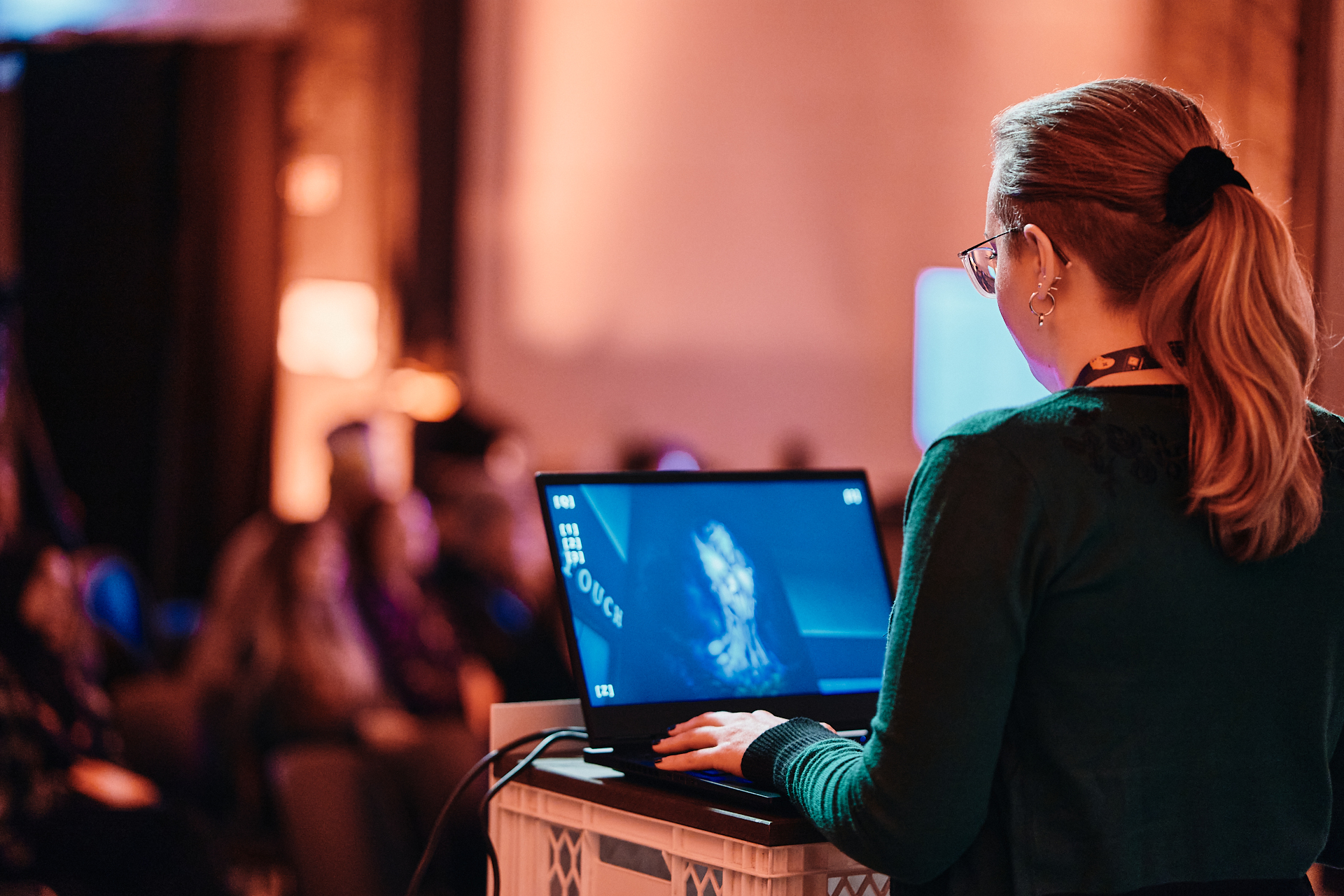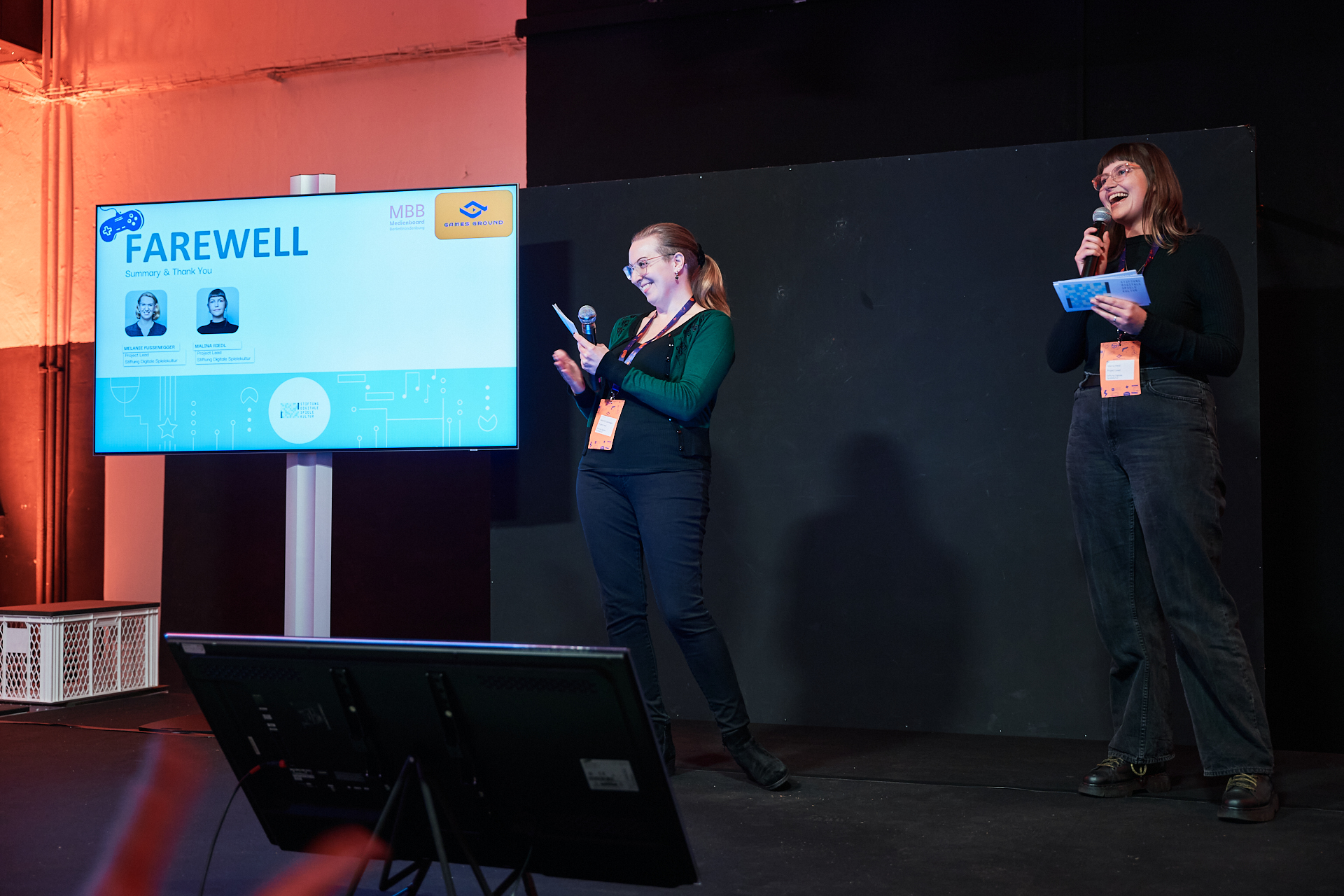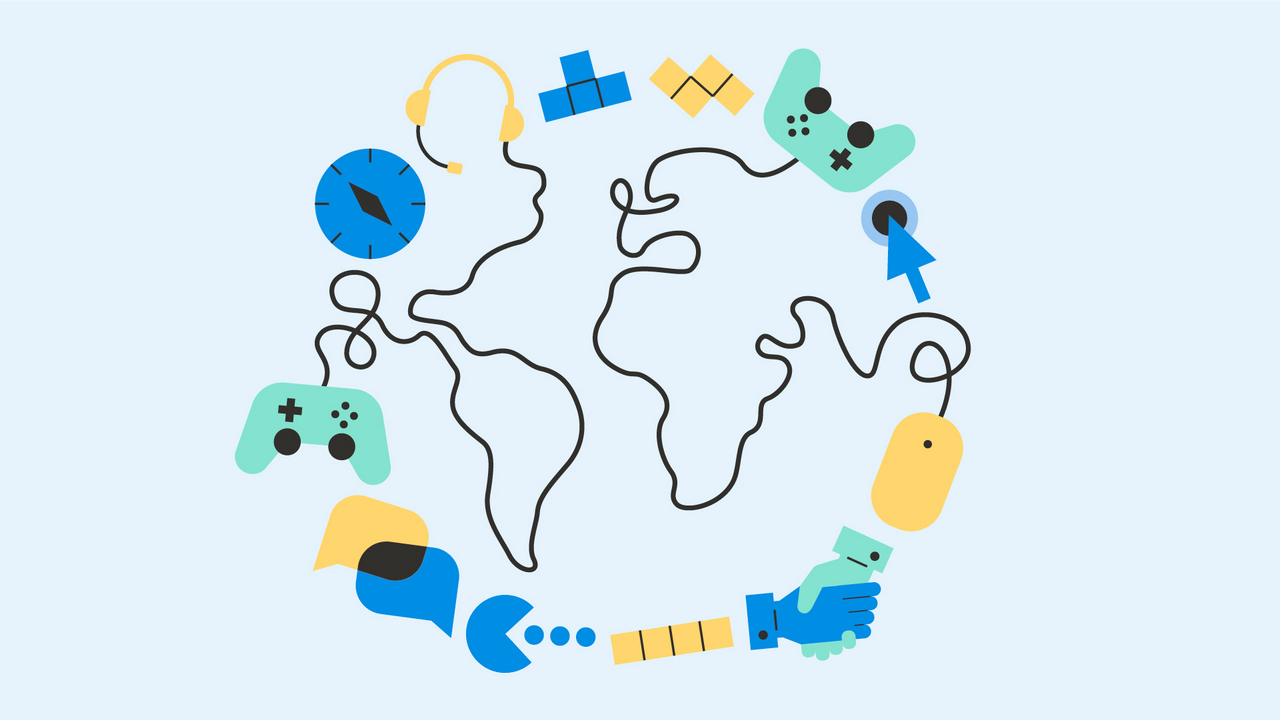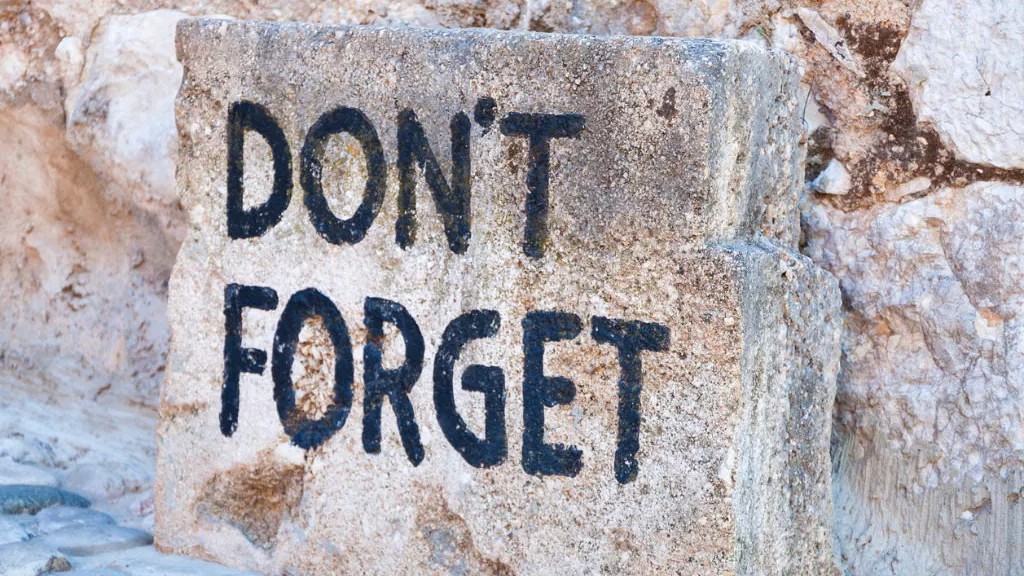As the spearhead of technological development and pop culture trends, digital gaming culture makes many developments relating to artificial intelligence (AI) visible in a special way – in its creative processes, its gaming experiences and the stories it tells.
The use of AI allows for greater efficiency, personalization and variability at many levels of game development. Artificial intelligence can use procedural algorithms to automatically generate game worlds, levels and content. To provide a challenging and immersive gaming experience, AI-controlled enemies can adapt to the player’s behavior. Generative algorithms can help in the creation of stories and non-linear storylines. AI can be used to automatically test games, identify bugs and improve overall quality. It can analyze players’ behavior to gain insights into their preferences, difficulties and play styles. Last but not least, AI can endow characters with realistic-looking emotions and behaviors to create a deeper emotional connection between the player and the game world, especially in combination with virtual reality (VR), augmented reality (AR) and mixed reality (MR).
AI is changing our view of reality, accelerating or replacing creative processes and posing major challenges for society. For example, the processing of large amounts of data by AI systems raises questions regarding the protection of personal rights and copyrights. Algorithms can generate discriminatory results due to biases in the training data. In the creative industries in particular, the increased use of AI will lead to job insecurity and increase social inequalities.
AI is changing our view of reality, accelerating or replacing creative processes and posing major challenges for society. For example, the processing of large amounts of data by AI systems raises questions regarding the protection of personal rights and copyrights. Algorithms can generate discriminatory results due to biases in the training data. In the creative industries in particular, the increased use of AI will lead to job insecurity and increase social inequalities.
On November 14, 2024, the Stiftung Digitale Spielekultur in cooperation with Games Ground invited you to the conference “AI Utopia and Dystopia: How Artificial Intelligence and Games Are Shaping Futures” from 10:00 to 18:00. The event aimed to explore the potential opportunities and challenges of the use of artificial intelligence, both in the games sector and in society as a whole. The event took place on the Ex-Machina Stage of the Games Ground Festival at the Alte Münze in Berlin. The program in English language dealt with the use of AI in games development as well as with the stories that games tell about AI utopias and dystopias. In addition to lectures and panels, the audience awaited Let’s Plays that were commented on by experts from fields such as politics, game development, science and civil society.
The one-day conference was sponsored by Medienboard Berlin-Brandenburg.
Program
Thursday, November 14
Language: English
Admission: from 9 a.m.
10:00 – 10:15 h
Opening & Greetings
Nandita Wegehaupt (Managing Director at Stiftung Digitale Spielekultur)
Felix Falk (Managing Directorat game – Verband der deutschen Games-Branche)
Amanda Förtsch (Funding Manager Games at Medienboard Berlin-Brandenburg)
10:15 – 11:15 h
AI in Game Development (Keynotes)
| Now Ulrike Küchler (CEO and Founder at Gamebook Studio HQ) | & | Then Dr. Dr. Stefan Höltgen (Visiting Professor at Martin Luther University Halle-Wittenberg) |
11:15 – 11:30 h – Coffee Break
11:30 – 12:00 h
Does My Artificial Work Buddy Violate Copyrights? – Creative AI and Copyright Risks (Keynote)
Kai Bodensiek (Attorney at Brehm & v. Moers)
Igor Rudolph (Attorney at Brehm & v. Moers)
12:00 – 13:00 h – Lunch Break
13:00 – 14:00 h
AI in Game Culture: Exploring Opportunities and Risks (Panel)
Katja Anclam (Managing Director and Head of Media and Communication at Deutsches Institut für Gutes Leben (difgl))
Marco-Alexander Breit (Sub-department Manager at the Federal Ministry for Economic Affairs and Climate Action)
Prof. Stephan Jacob (Professor at Darmstadt University of Applied Sciences and Founder & CFO at World Creator)
Elisabeth Secker (Managing Director at Unterhaltungssoftware Selbstkontrolle USK)
Julian Viezens (Programmer and Head of Innovation at btf Games)
14:00 – 14:15 h – Coffee Break
14:15 – 15:15 h
Cyberpunk 2077: From Dystopian Fears to AI Realities (Let’s Play)
Lena Falkenhagen (Professor at University of Fine Arts Essen)
Dr. Lars Schmeink (Researcher in Futures Studies at German Aerospace Center (DLR))
Miles Tost (Level Design Lead at CD PROJEKT RED)
Carolin Wendt (Lead International Community at CD PROJEKT RED)
15:15 – 15:30 h – Coffee Break
15:30 – 16:30 h
Tacoma: Dreaming AI Utopias and the Future of Human-Machine Interaction (Let’s Play)
Johanna Pirker (Professor at Graz University of Technology)
Laura C. Schmidt (Curator for Games at ZKM Center for Art and Media Karlsruhe)
Christian Huberts (Freelance Cultural Scientist)
16:30 – 16:45 h – Coffee Break
16:45 – 17:45 h
Uncover the Smoking Gun: The Impact of AI Innovations in Game Development (Let’s Play)
Thomas Bedenk (Freelance Strategic Advisor XR / Games / AI)
Matthes Lindner (EU Acceleration Manager at SpielFabrique)
Prof. Marion Plank (Professor of Game Art at IU International University of Applied Sciences)
17:45 – 18:00 h
Summary, Thank You & Farewell
Melanie Fussenegger (Project Lead at Stiftung Digitale Spielekultur)
Malina Riedl (Project Lead at Stiftung Digitale Spielekultur)
Speakers
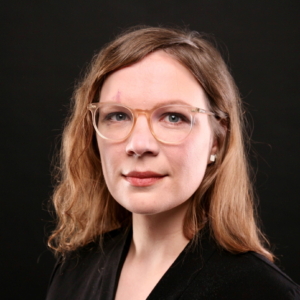 Ulrike Küchler (she/her) is CEO and Co-Founder of Gamebook Studio, dedicated to making simulation games scalable in and beyond the entertainment industry with season-based content and the award winning Gamebook Platform. The games she has been working on include originals and partnerships with global industry leaders such as Hasbro, Skybound Entertainment, and iDreamSky. She builds on an extensive 20+ year background in the creative industries and across media and platforms such as broadcasting, film, music, publishing, and gaming. Ulrike Küchler is an expert in leveraging new technologies such as AI to create new gameplay and interactive entertainment formats for new audiences, making them scalable worldwide with no-code creator solutions across media. In addition to her industry contributions, she shares her experience at leading industry events such as the AI World Fair and teaches at select universities such as NYU Tisch School of Arts on tech-driven innovation in storytelling.
Ulrike Küchler (she/her) is CEO and Co-Founder of Gamebook Studio, dedicated to making simulation games scalable in and beyond the entertainment industry with season-based content and the award winning Gamebook Platform. The games she has been working on include originals and partnerships with global industry leaders such as Hasbro, Skybound Entertainment, and iDreamSky. She builds on an extensive 20+ year background in the creative industries and across media and platforms such as broadcasting, film, music, publishing, and gaming. Ulrike Küchler is an expert in leveraging new technologies such as AI to create new gameplay and interactive entertainment formats for new audiences, making them scalable worldwide with no-code creator solutions across media. In addition to her industry contributions, she shares her experience at leading industry events such as the AI World Fair and teaches at select universities such as NYU Tisch School of Arts on tech-driven innovation in storytelling.
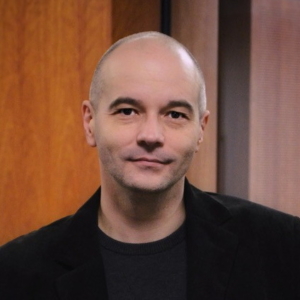 Dr. Dr. Stefan Höltgen (he/him) Visiting Professor of Media and Communication Studies at the University of Halle. In addition: Research assistant in the Department of Media Studies at the University of Bonn in the DFG project “Computer Philology: Technical Readings of the BASIC Programming Culture”. Doctorates in German Studies and Computer Science. Fields of work: Computer archaeology, game science, medial humanities. Co-editor of the series “Computer Archaeology”, editor of the textbook series “Media Technical Knowledge”, spokesman of the working group on computer science and computer history in the GI as well as convenor of the working group on games in the DHd e.V. ORCID: 0000-0001-8669-8507.
Dr. Dr. Stefan Höltgen (he/him) Visiting Professor of Media and Communication Studies at the University of Halle. In addition: Research assistant in the Department of Media Studies at the University of Bonn in the DFG project “Computer Philology: Technical Readings of the BASIC Programming Culture”. Doctorates in German Studies and Computer Science. Fields of work: Computer archaeology, game science, medial humanities. Co-editor of the series “Computer Archaeology”, editor of the textbook series “Media Technical Knowledge”, spokesman of the working group on computer science and computer history in the GI as well as convenor of the working group on games in the DHd e.V. ORCID: 0000-0001-8669-8507.
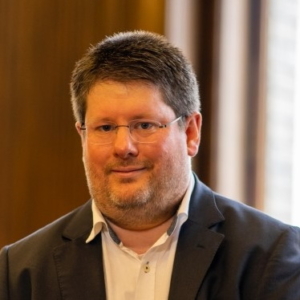 Kai Bodensiek (he/him) is a partner at the Berlin office of Brehm &. v. Moers. He has been advising the German and international games industry since 2005. He focuses on the negotiation and conclusion of license and development agreements, rights clearance and copyright, compliance in the area of consumer, data and youth protection as well as corporate financing and support in the context of M&A processes.
Kai Bodensiek (he/him) is a partner at the Berlin office of Brehm &. v. Moers. He has been advising the German and international games industry since 2005. He focuses on the negotiation and conclusion of license and development agreements, rights clearance and copyright, compliance in the area of consumer, data and youth protection as well as corporate financing and support in the context of M&A processes.
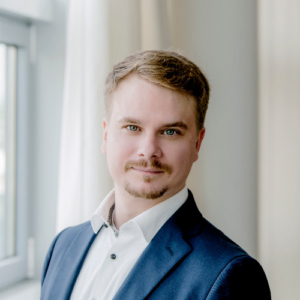 Igor Rudolph (he/him). After working in large and medium-sized law firms and a listed Berlin start-up, he has been advising both developers and publishers on all legal issues for more than 5 years. This ranges from founding indie studios and advising them on their first contract negotiations, to large publishing deals, company sales and everything in between.
Igor Rudolph (he/him). After working in large and medium-sized law firms and a listed Berlin start-up, he has been advising both developers and publishers on all legal issues for more than 5 years. This ranges from founding indie studios and advising them on their first contract negotiations, to large publishing deals, company sales and everything in between.
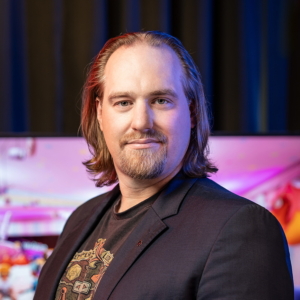 Stephan Jacob (he/him) is a pioneering professor at the University of Darmstadt and founder and CFO of BiteTheBytes GmbH. With his expertise in real-time graphics, AI for games and game design, he founded award-winning projects such as a new CLOD algorithm or the terrain generation tool “World Creator” – world market leader in the field of artificial landscape generation. He has been teaching at numerous game development institutes since 2007 and was head of the Game Programming department at the Games Academy. He is a sought-after speaker and industry expert and is involved in innovative research projects, including a gamified project with the European Space Agency to improve landing AI for the next lunar missions.
Stephan Jacob (he/him) is a pioneering professor at the University of Darmstadt and founder and CFO of BiteTheBytes GmbH. With his expertise in real-time graphics, AI for games and game design, he founded award-winning projects such as a new CLOD algorithm or the terrain generation tool “World Creator” – world market leader in the field of artificial landscape generation. He has been teaching at numerous game development institutes since 2007 and was head of the Game Programming department at the Games Academy. He is a sought-after speaker and industry expert and is involved in innovative research projects, including a gamified project with the European Space Agency to improve landing AI for the next lunar missions.
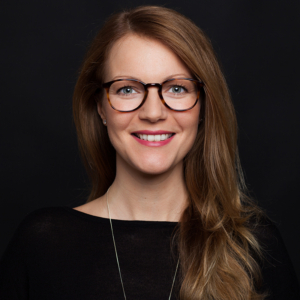 Elisabeth Secker (she/her) has been Managing Director of the Unterhaltungssoftware Selbstkontrolle (USK) since January 2018. As part of her role, she is a member of the board of the International Age Rating Coalition (IARC) for age labelling of online games and apps. Previously, she was deputy head of the youth media protection division at ‘die medienanstalten’, the umbrella organisation of the 14 state media authorities in Berlin. From 2011 to 2013, the communications graduate worked as a public affairs consultant for well-known companies in the field of IT and network policy. Elisabeth Secker is also a member of the advisory board of the Digital Games Culture Foundation and the Safer Advisory Board of an international games platform.
Elisabeth Secker (she/her) has been Managing Director of the Unterhaltungssoftware Selbstkontrolle (USK) since January 2018. As part of her role, she is a member of the board of the International Age Rating Coalition (IARC) for age labelling of online games and apps. Previously, she was deputy head of the youth media protection division at ‘die medienanstalten’, the umbrella organisation of the 14 state media authorities in Berlin. From 2011 to 2013, the communications graduate worked as a public affairs consultant for well-known companies in the field of IT and network policy. Elisabeth Secker is also a member of the advisory board of the Digital Games Culture Foundation and the Safer Advisory Board of an international games platform.
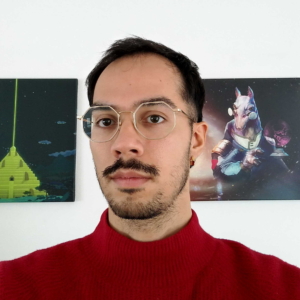 Julian Viezens (he/him) works at btf Games as a developer since 2020. He developed “Leons Identität”, “Dino Dino” and currently “The Berlin Apartment”. Additionally, as Head of Innovation, he is responsible for future projects and developments at the studio. Outside of his work he tries to do his part in shaping the German games industry for the current and future Generations into a more modern, diverse and inclusive industry.
Julian Viezens (he/him) works at btf Games as a developer since 2020. He developed “Leons Identität”, “Dino Dino” and currently “The Berlin Apartment”. Additionally, as Head of Innovation, he is responsible for future projects and developments at the studio. Outside of his work he tries to do his part in shaping the German games industry for the current and future Generations into a more modern, diverse and inclusive industry.
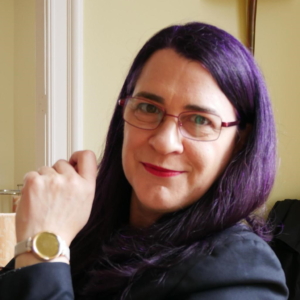 Lena Falkenhagen (she/her) is a German freelance author and narrative game designer who fluctuates between worlds, genres and formats on a regular basis. Her latest game ist political satire Beholder 3 with Paintbucket Games (Berlin). Lena’s trademarks are stories and games that take a critical look at our own society. In 2023, her game together with Paintbucket Game studio „Beholder 3“ won the German Computer Games Award for „Best Serious Game“, which in 2022 was awarded with the German Developer Award for „Best Story“ and „Best Game Beyond Entertainment. In 2017, she was elected one of the 10 most influential female developers of the German games industry by magazine „Gameswirtschaft„, in 2015 she won „Best Browsergame“ with „Drakensang Online – Rise of Balor“, in 2010, she was awarded with the DeliA-award for her historical fiction novel „Die Lichtermagd“. She was professor for Game Design at University of Europe for Applied Sciences Germany (UE Germany) in Hamburg and will be a professor for games and narrative design at Hochschule für Bildende Künste Essen (HBK). She also is the national chair of the Association of German Authors (Verband deutscher Schriftstellerinnen und Schriftsteller (VS in ver.di)), on the board of administration of VG Wort, speaker of German Literaturkonferenz in the German Culture Council and co-founder of Phantastik-Autoren-Netzwerk (PAN) e.V. She was a member of the PAN board for 6 years and co-founded the Netzwerk Autorenrechte (Network Author’s Rights) in 2016.
Lena Falkenhagen (she/her) is a German freelance author and narrative game designer who fluctuates between worlds, genres and formats on a regular basis. Her latest game ist political satire Beholder 3 with Paintbucket Games (Berlin). Lena’s trademarks are stories and games that take a critical look at our own society. In 2023, her game together with Paintbucket Game studio „Beholder 3“ won the German Computer Games Award for „Best Serious Game“, which in 2022 was awarded with the German Developer Award for „Best Story“ and „Best Game Beyond Entertainment. In 2017, she was elected one of the 10 most influential female developers of the German games industry by magazine „Gameswirtschaft„, in 2015 she won „Best Browsergame“ with „Drakensang Online – Rise of Balor“, in 2010, she was awarded with the DeliA-award for her historical fiction novel „Die Lichtermagd“. She was professor for Game Design at University of Europe for Applied Sciences Germany (UE Germany) in Hamburg and will be a professor for games and narrative design at Hochschule für Bildende Künste Essen (HBK). She also is the national chair of the Association of German Authors (Verband deutscher Schriftstellerinnen und Schriftsteller (VS in ver.di)), on the board of administration of VG Wort, speaker of German Literaturkonferenz in the German Culture Council and co-founder of Phantastik-Autoren-Netzwerk (PAN) e.V. She was a member of the PAN board for 6 years and co-founded the Netzwerk Autorenrechte (Network Author’s Rights) in 2016.
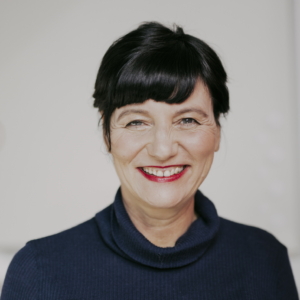 Katja Anclam (M.A.) (she/her) is an AI strategist and Managing Director of the German Institute for Good Life (difgl). The media scientist and historian has worked worldwide as a TV producer. Together with computer scientist Christoph Henseler, she founded the German Institute for Good Life (difgl), where she researches and consults at the intersection of science and communication. Katja is one of the initiators of the BMAS research project “KIDD – Artificial Intelligence in the Service of Diversity” and is recognized as a German-speaking algorithm expert in civil society by reframe Tech of the Bertelsmann Foundation. Katja contributed to the second edition of the AI Standardization Roadmap and is a member of the German Journalists Association (DJV) Berlin. She also serves on the board of the Working Group on Company-Based Continuing Education Research (ABWF) and the Berlin NGO female.vision, which advocates for an equitable work and life environment and greater diversity in society.
Katja Anclam (M.A.) (she/her) is an AI strategist and Managing Director of the German Institute for Good Life (difgl). The media scientist and historian has worked worldwide as a TV producer. Together with computer scientist Christoph Henseler, she founded the German Institute for Good Life (difgl), where she researches and consults at the intersection of science and communication. Katja is one of the initiators of the BMAS research project “KIDD – Artificial Intelligence in the Service of Diversity” and is recognized as a German-speaking algorithm expert in civil society by reframe Tech of the Bertelsmann Foundation. Katja contributed to the second edition of the AI Standardization Roadmap and is a member of the German Journalists Association (DJV) Berlin. She also serves on the board of the Working Group on Company-Based Continuing Education Research (ABWF) and the Berlin NGO female.vision, which advocates for an equitable work and life environment and greater diversity in society.
 Marco-Alexander Breit (he/him) was born in Neunkirchen / Saarland in 1981. From 2001 to 2008, he studied political science, sociology and medieval and modern history at Heidelberg University and international political economy at the Catholic University of Leuven, Belgium. From 2008 until 2014 he held various positions in the State Chancellery of Saarland, including head of the office of the Director of the State Chancellery and Minister for the Federation, Culture and Media (2010-2011), and from 2011 was head of the office of Minister-President Annegret Kramp-Karrenbauer. In April 2014 he was appointed personal advisor to the Head of the Federal Chancellery and Federal Minister for Special Tasks, Peter Altmaier, in the Federal Chancellery in Berlin. From April 2018 until July 2024, Mr Breit held various senior positions in the Economic Affairs Ministry in the field of digital policy. Starting in 2020, Marco-Alexander Breit has headed the Artificial Intelligence and Digital Technologies Task Force in the Federal Ministry for Economic Affairs and Energy. In February 2022 he was appointed Deputy Director-General for Artificial Intelligence, Data and Digital Technologies in the Federal Ministry for Economic Affairs and Climate Action. Since July 2024, he is Deputy Director-General for Aerospace, Maritime Industry and Security and Defence Industries.
Marco-Alexander Breit (he/him) was born in Neunkirchen / Saarland in 1981. From 2001 to 2008, he studied political science, sociology and medieval and modern history at Heidelberg University and international political economy at the Catholic University of Leuven, Belgium. From 2008 until 2014 he held various positions in the State Chancellery of Saarland, including head of the office of the Director of the State Chancellery and Minister for the Federation, Culture and Media (2010-2011), and from 2011 was head of the office of Minister-President Annegret Kramp-Karrenbauer. In April 2014 he was appointed personal advisor to the Head of the Federal Chancellery and Federal Minister for Special Tasks, Peter Altmaier, in the Federal Chancellery in Berlin. From April 2018 until July 2024, Mr Breit held various senior positions in the Economic Affairs Ministry in the field of digital policy. Starting in 2020, Marco-Alexander Breit has headed the Artificial Intelligence and Digital Technologies Task Force in the Federal Ministry for Economic Affairs and Energy. In February 2022 he was appointed Deputy Director-General for Artificial Intelligence, Data and Digital Technologies in the Federal Ministry for Economic Affairs and Climate Action. Since July 2024, he is Deputy Director-General for Aerospace, Maritime Industry and Security and Defence Industries.
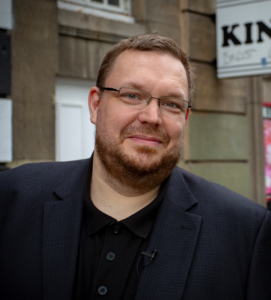 Dr. Lars Schmeink (he/him) is a researcher in Futures Studies at the German Aerospace Center (DLR) and works on the future of mobility. He is a cultural and media studies scholar and has worked at a variety of universities around the world, researching science fiction, futures, and the cultural representation of technologies.
Dr. Lars Schmeink (he/him) is a researcher in Futures Studies at the German Aerospace Center (DLR) and works on the future of mobility. He is a cultural and media studies scholar and has worked at a variety of universities around the world, researching science fiction, futures, and the cultural representation of technologies.
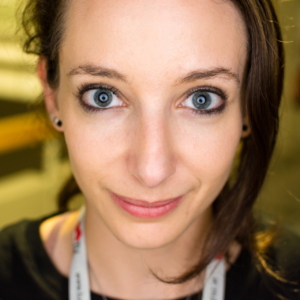 Professor Johanna Pirker (she/her) is a computer scientist focusing on game development, research, and education and an active and strong voice of the local indie dev community. She has lengthy experience in designing, developing, and evaluating games and VR experiences and believes in them as tools to support learning, collaboration, and solving real problems. Johanna has started in the industry as QA tester at EA and still consults studios in the field of games user research. In 2011/12 she started researching and developing VR experiences at Massachusetts Institute of Technology. At the moment, she is is a professor at TU Graz and researches games with a focus on AI, HCI, data analysis, and VR technologies with previous stations at LMU Munich, ETH Zurich, or MIT. Johanna was listed on the Forbes 30 Under 30 list of science professionals.
Professor Johanna Pirker (she/her) is a computer scientist focusing on game development, research, and education and an active and strong voice of the local indie dev community. She has lengthy experience in designing, developing, and evaluating games and VR experiences and believes in them as tools to support learning, collaboration, and solving real problems. Johanna has started in the industry as QA tester at EA and still consults studios in the field of games user research. In 2011/12 she started researching and developing VR experiences at Massachusetts Institute of Technology. At the moment, she is is a professor at TU Graz and researches games with a focus on AI, HCI, data analysis, and VR technologies with previous stations at LMU Munich, ETH Zurich, or MIT. Johanna was listed on the Forbes 30 Under 30 list of science professionals.
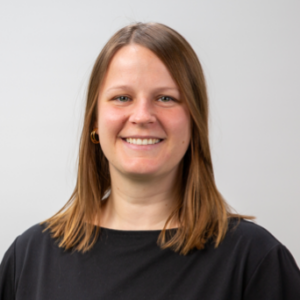 Laura C. Schmidt (she/her) studied Fine Arts (B.A.) at the Complutense University of Madrid, Spain and holds a Master’s degree in Multimedia and Visual Arts from the Universidad Politécnica de Valencia, Spain. She studied Interaction Design at Joanneum University of Applied Science in Graz, Austria, and Public Interest Design at the Bergische Universität Wuppertal. Since 2023 she has been curator for games at the ZKM | Center for Art and Media Karlsruhe, where she had previously worked in various functions since 2020. Her main curatorial interest lies at the intersection of media art, games, and gaming culture.
Laura C. Schmidt (she/her) studied Fine Arts (B.A.) at the Complutense University of Madrid, Spain and holds a Master’s degree in Multimedia and Visual Arts from the Universidad Politécnica de Valencia, Spain. She studied Interaction Design at Joanneum University of Applied Science in Graz, Austria, and Public Interest Design at the Bergische Universität Wuppertal. Since 2023 she has been curator for games at the ZKM | Center for Art and Media Karlsruhe, where she had previously worked in various functions since 2020. Her main curatorial interest lies at the intersection of media art, games, and gaming culture.
 Christian Huberts (he/him), born 1982, studied “Cultural Studies and Aesthetic Practice” at the University of Hildesheim and since 2009 works as a cultural and media science publicist based in Berlin. His focus is on the culture of digital games in all its facets. He appears regularly as an expert for digital games at cultural events and on radio and TV. Most recently he published the game studies anthology »Zwischen|Welten: Atmosphären im Computerspiel« in the vwh-Verlag, provided editorial support for the »Handbuch Gameskultur« published by the German Cultural Council and the industry association game, and supported the Berlin studio waza! Games as associate producer in the development of the political education app Konterbunt. From March 2020 to August 2024, he has been working for the Foundation for Digital Games Culture as project manager for the initiative »Remembering with games« and as project lead for »Let’s Remember!«. He also writes for various scientific publications, cultural magazines and online newspapers on the participation in virtual worlds and the culture of computer games.
Christian Huberts (he/him), born 1982, studied “Cultural Studies and Aesthetic Practice” at the University of Hildesheim and since 2009 works as a cultural and media science publicist based in Berlin. His focus is on the culture of digital games in all its facets. He appears regularly as an expert for digital games at cultural events and on radio and TV. Most recently he published the game studies anthology »Zwischen|Welten: Atmosphären im Computerspiel« in the vwh-Verlag, provided editorial support for the »Handbuch Gameskultur« published by the German Cultural Council and the industry association game, and supported the Berlin studio waza! Games as associate producer in the development of the political education app Konterbunt. From March 2020 to August 2024, he has been working for the Foundation for Digital Games Culture as project manager for the initiative »Remembering with games« and as project lead for »Let’s Remember!«. He also writes for various scientific publications, cultural magazines and online newspapers on the participation in virtual worlds and the culture of computer games.
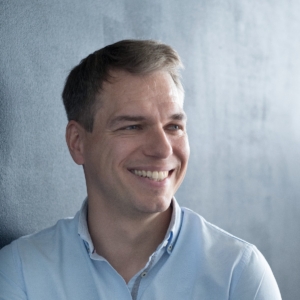 Thomas Bedenk (he/him) is a freelance advisor with over 28 years of experience in digital production and management. His focus is on strategy on XR, games, AI and UX in the context of digital acceleration. As VP Extended Reality, Thomas spent 9 years leading XR at Endava and previously Exozet with award-winning projects for clients such as Siemens, Audi and Volkswagen from product design to employee training to sales and marketing. Thomas speaks at international conferences, is a jury member of various awards and is a founding member of the XRBB and Game associations. From 2008 to 2015, he ran his own game development studio Brightside Games. Before that, he was a freelance designer and developer for 10 years and worked for a while on special effects for movies. He holds a degree in Media Design (FH) and an M.Sc. in Human Factors and has taught as a freelance lecturer at various universities. He published his first video games online in 1998.
Thomas Bedenk (he/him) is a freelance advisor with over 28 years of experience in digital production and management. His focus is on strategy on XR, games, AI and UX in the context of digital acceleration. As VP Extended Reality, Thomas spent 9 years leading XR at Endava and previously Exozet with award-winning projects for clients such as Siemens, Audi and Volkswagen from product design to employee training to sales and marketing. Thomas speaks at international conferences, is a jury member of various awards and is a founding member of the XRBB and Game associations. From 2008 to 2015, he ran his own game development studio Brightside Games. Before that, he was a freelance designer and developer for 10 years and worked for a while on special effects for movies. He holds a degree in Media Design (FH) and an M.Sc. in Human Factors and has taught as a freelance lecturer at various universities. He published his first video games online in 1998.
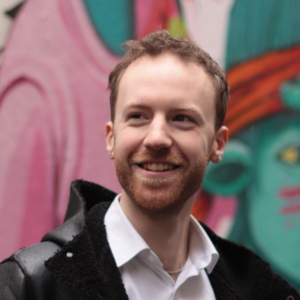 Matthes Lindner (he/him) is a futurist who happens to work in the games industry. At Spielfabrique, he coordinates acceleration activities, conducts research on sustainability in games, and creates new programs on studio resilience. Matthes is also a lecturer for futures literacy and professional development at Bonn University. Ultimately, Matthes is passionate about democratizing conversations about the world we want to live in and advocates for new narratives and visions for the future that bring us closer to a good life for all. He holds degrees in social and cultural anthropology and sustainability sciences.
Matthes Lindner (he/him) is a futurist who happens to work in the games industry. At Spielfabrique, he coordinates acceleration activities, conducts research on sustainability in games, and creates new programs on studio resilience. Matthes is also a lecturer for futures literacy and professional development at Bonn University. Ultimately, Matthes is passionate about democratizing conversations about the world we want to live in and advocates for new narratives and visions for the future that bring us closer to a good life for all. He holds degrees in social and cultural anthropology and sustainability sciences.
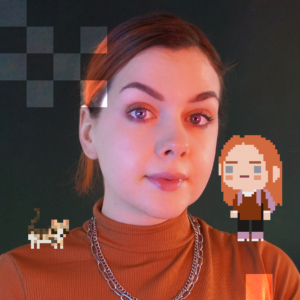 Professor Marion Plank (she/her) has created art and designs for various successful game titles with over 12 years of experience. She is an expert in pixel art and animation, as well as 2D game graphics and concept art. Continuing her own education and research in the areas of storytelling, aesthetics and AI, Plank began teaching in 2015 as well as creating online tutorials for an audience of thousands of game art students. As an ambassador for “Women in Games” she is a mentor for young female game artists. Since July 2022 she is a full-time professor for game art at IU International University.
Professor Marion Plank (she/her) has created art and designs for various successful game titles with over 12 years of experience. She is an expert in pixel art and animation, as well as 2D game graphics and concept art. Continuing her own education and research in the areas of storytelling, aesthetics and AI, Plank began teaching in 2015 as well as creating online tutorials for an audience of thousands of game art students. As an ambassador for “Women in Games” she is a mentor for young female game artists. Since July 2022 she is a full-time professor for game art at IU International University.
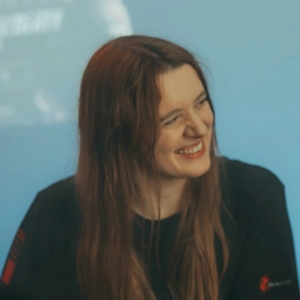 Carolin Wendt (she/her) is Lead International Community at CD PROJEKT RED and leads a team of community managers to align regional strategies in EMEA & Asia with the global vision. She is working on both Cyberpunk 2077 and The Witcher franchises and has executed multiple global and regional projects from event series over community activations with leading social media platforms to impactful content creator collaborations. She has more than 9 years of professional experience in the gaming industry, both in communication and project management. Carolin has a master’s degree in international political science and has recently published “The Pocket Mentor for Game Community Management” with CRC Press, an introductory book aiming to help students and juniors navigate the requirements of the role.
Carolin Wendt (she/her) is Lead International Community at CD PROJEKT RED and leads a team of community managers to align regional strategies in EMEA & Asia with the global vision. She is working on both Cyberpunk 2077 and The Witcher franchises and has executed multiple global and regional projects from event series over community activations with leading social media platforms to impactful content creator collaborations. She has more than 9 years of professional experience in the gaming industry, both in communication and project management. Carolin has a master’s degree in international political science and has recently published “The Pocket Mentor for Game Community Management” with CRC Press, an introductory book aiming to help students and juniors navigate the requirements of the role.
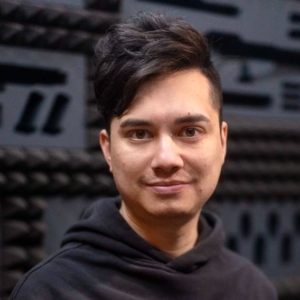 Miles Tost (he/him) is Level Design Lead at Polish game development studio CD PROJEKT RED with more than 12 years of experience in the industry. He is specialised in pushing the limits of AAA open-world RPGs, as exemplified through his work on games such as The Witcher 3: Wild Hunt (and its expansions) and Cyberpunk 2077 and its 2023 expansion Cyberpunk 2077: Phantom Liberty. He is currently leading CD Projekt RED’s Level Design Team on the first entry of a new saga set in the Witcher universe.
Miles Tost (he/him) is Level Design Lead at Polish game development studio CD PROJEKT RED with more than 12 years of experience in the industry. He is specialised in pushing the limits of AAA open-world RPGs, as exemplified through his work on games such as The Witcher 3: Wild Hunt (and its expansions) and Cyberpunk 2077 and its 2023 expansion Cyberpunk 2077: Phantom Liberty. He is currently leading CD Projekt RED’s Level Design Team on the first entry of a new saga set in the Witcher universe.
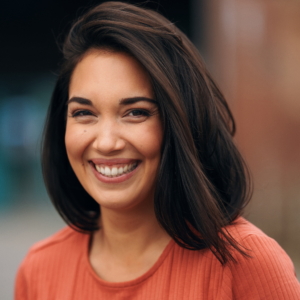 Host Stefanie Langer (she/her) was born in Wolfsburg in 1989, lost her heart to Hamburg as a child and now lives in Berlin. Her roots lie in the beautiful Philippines, colorful India and sunny Spain. Whether on TV, on the web or live on stages large and small, she lives for presenting and loves to tell stories that entertain and touch the audience. She loves meeting interesting people in interviews or discovering exciting places around the world. She feels particularly at home in gaming and eSports – in co-op or solo, she is fascinated by strong storytelling and good loot.
Host Stefanie Langer (she/her) was born in Wolfsburg in 1989, lost her heart to Hamburg as a child and now lives in Berlin. Her roots lie in the beautiful Philippines, colorful India and sunny Spain. Whether on TV, on the web or live on stages large and small, she lives for presenting and loves to tell stories that entertain and touch the audience. She loves meeting interesting people in interviews or discovering exciting places around the world. She feels particularly at home in gaming and eSports – in co-op or solo, she is fascinated by strong storytelling and good loot.
Event Location
The conference will take place as part of Games Ground at the Alte Münze in Berlin.
Address
Alte Münze, Molkenmarkt 2, 10179 Berlin
Photos, film and sound recordings
Photos as well as film and sound recordings will be made at the conference. By attending the event, you agree to their subsequent use.
Information for guests with limited mobility
The majority of the Alte Münze is at ground level and the conference rooms are also accessible without steps. There is space for wheelchair users at the sides of the audience area.
The catering area is also steplessly accessible.
A wheelchair-accessible WC is available.
Unfortunately, the entire Alte Münze building is not steplessly accessible.
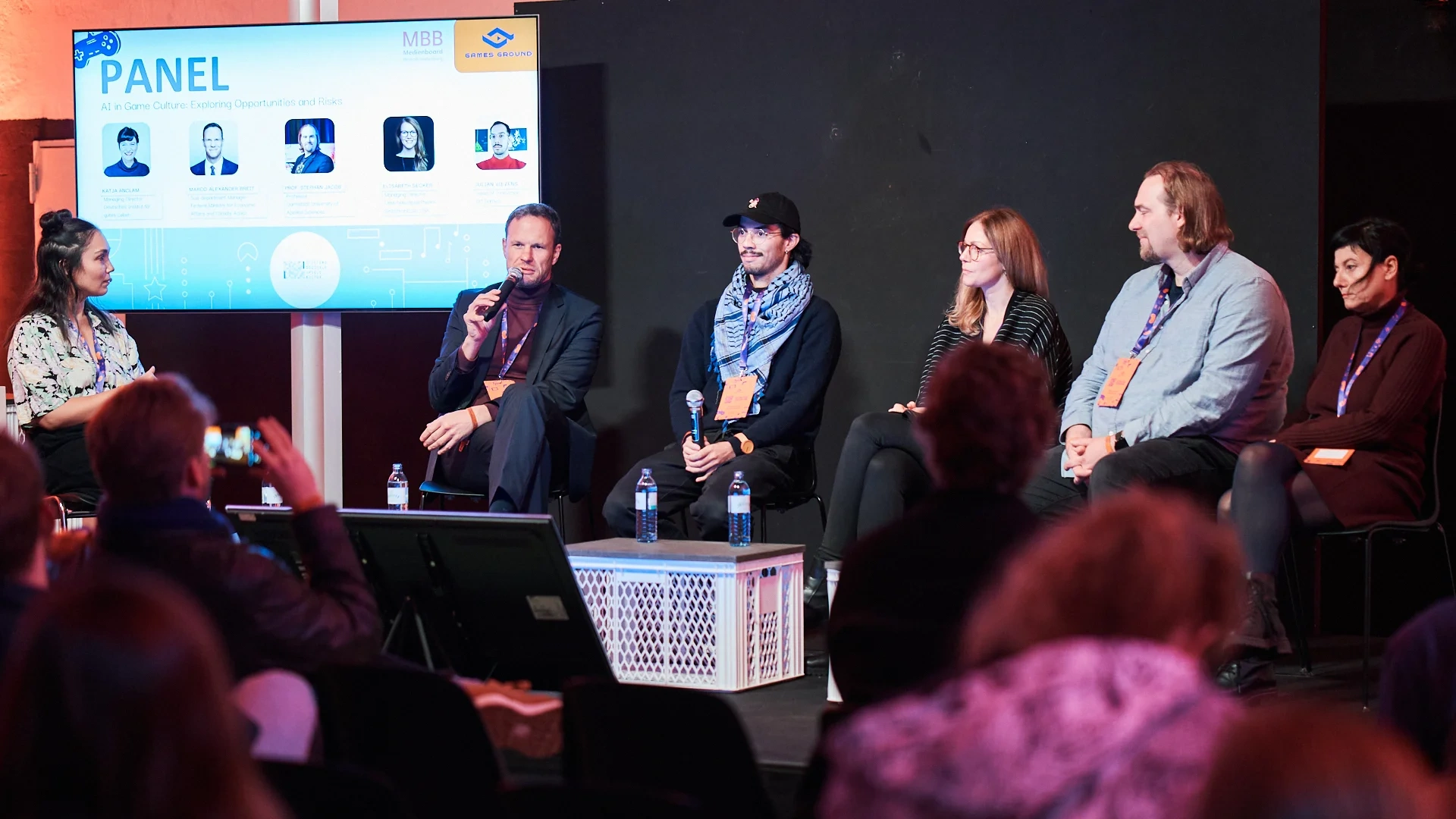
Recording „AI Utopia and Dystopia: How Artificial Intelligence and Games Are Shaping Futures“
Funded by

In Cooperation With
